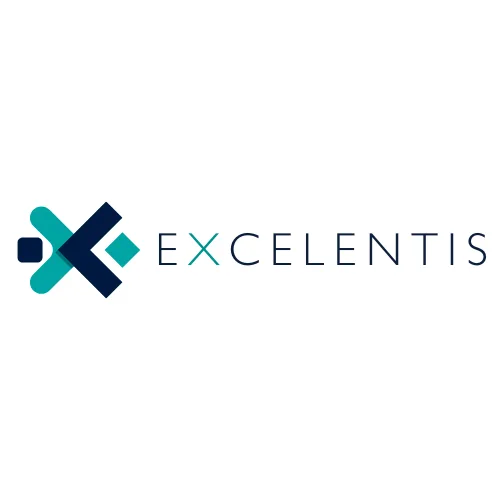Dental Implants Albania:
2026 Prices | Save 85% vs EU/USA
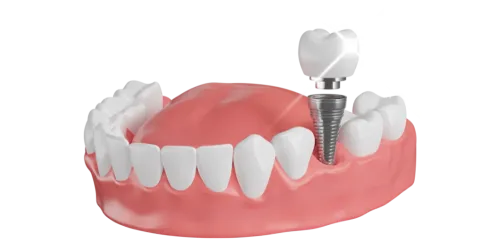
750€
/Implant
🛈 Includes: Implant + Abutment + Crown + Surgery + Implant Passport
- Timescale: 1-3 Days
- Warranty: 15+ Years
- FREE All-Inclusive Dental Tourism 🛈(Quotes Over 4,000€): Flight Tickets + VIP Transfers + Hotel + Personal Assistant


How Much Do Dental Implants Cost in Albania? (2026 Prices)
The cost of dental implants in Tirana, Albania starts from €750 per implant and can reach up to €1,150, depending on the implant system and clinical complexity.
Single-tooth implant treatments typically range between €750–€1,150, and the price is all-inclusive, covering 3D diagnostics, surgical placement, temporary crown, and implant passport.
Full-mouth restoration prices start from:
• All-on-4®: from €4,600 per arch
• All-on-6®: from €5,900 per arch
• Zygomatic Implants: from €3,950 per arch

Dental Implants in Albania | Full Guide
Switch between the tabs below to check each attribute and value of Dental Implants.
What are dental implants?
Dental implants are artificial structures that replace missing teeth, offering a long-term solution for tooth loss. They consist of a titanium, ceramic, or zirconia implant body inserted into the jawbone, an abutment post, and a prosthetic tooth. With a high success rate of over 90% lasting 15 years or more, dental implants restore chewing ability and cosmetic appearance.
What Components Make Up a Dental Implant System?
A dental implant system consists of three essential components:
The implant fixture (or post) – a titanium or zirconia screw inserted into the jawbone that replaces the tooth root.
The abutment – a connector piece attached to the implant fixture that serves as a foundation.
The prosthesis – the visible crown, bridge, or denture that restores appearance and function.
Implant Fixture
The implant fixture is a screw-shaped titanium rod that serves as the foundation of the dental implant system. It’s surgically inserted directly into the jawbone to replace the natural tooth root. Typically made of biocompatible titanium or titanium alloys, the implant fixture fuses with the surrounding bone through a process called osseointegration. This biological integration provides stability and strength to support the replacement tooth. The implant fixture is usually around 18mm long and comes in various diameters to accommodate different tooth sizes and jawbone conditions. Its design includes threads that engage with the bone to promote better integration and stability
Abutment
The abutment is a small connector piece that joins the implant fixture to the final restoration. It attaches to the implant fixture and protrudes above the gumline, serving as a foundation for the crown. Abutments are typically made from materials like titanium, zirconia, gold, or stainless steel to ensure durability and biocompatibility. There are different types of abutments—screw-retained, cement-retained, and screwmentable—each with their own benefits. The abutment is either placed during the initial implant surgery or in a secondary procedure after the implant has successfully integrated with the jawbone. This component is crucial as it creates the proper connection between the embedded implant and the visible restoration
Crown/Prosthesis
The crown is the visible part of the dental implant that replaces the missing tooth above the gumline. Custom-made to match the color, shape, and size of the surrounding natural teeth, the crown provides both aesthetic appeal and functional capability. Crowns can be made from various materials including porcelain, ceramic (like zirconia or lithium disilicate/eMax), metal, or a combination like porcelain-fused-to-metal (PFM). They can be attached to the abutment using either dental cement or screws. For front-facing teeth, cement is often preferred for aesthetic reasons11. The crown is the component that allows patients to chew, speak, and smile confidently after implant treatment. It’s designed to withstand the forces of biting and chewing while providing a natural appearance.
What Types of Dental Implants Are Available in Albania?
Dental implants are classified by their placement method and design. The main types include endosteal implants (placed directly in the jawbone), subperiosteal implants (resting on the jawbone under the gum), zygomatic implants (anchored in the cheekbone), All-on-4 implants (supporting full-arch prosthetics), mini dental implants (smaller diameter posts), and immediate load implants (allowing same-day tooth placement).
Implants classified by their placement
Endosteal dental implants
Endosteal implants are placed directly inside the jawbone, serving as artificial tooth roots. These are the most common type, available in various forms including root form, blade (plate) form, and ramus frame design. They require adequate healthy jawbone for successful placement and achieve integration through direct bone contac
Subperiosteal dental implants
Subperiosteal implants rest above the jawbone but beneath the gum tissue. These custom-made metal frameworks are suitable for patients lacking sufficient jawbone density. They can be unilateral, complete, or circumferential in design, with metal posts protruding through the gums to secure prosthetic teeth
Zygomatic implants
Zygomatic implants anchor into the cheekbone (zygomatic bone) rather than the jawbone. These specialized implants provide solutions for patients with severe bone loss in the upper jaw who cannot support traditional endosteal implants
| Implant Type | Description | Placement | Ideal For | Success Rate |
|---|---|---|---|---|
| Endosteal | Titanium screws that serve as artificial tooth roots | Directly inside jawbone | Patients with sufficient bone density | 98% |
| Subperiosteal | Custom-made metal framework | Above jawbone but beneath gum tissue | Patients lacking sufficient jawbone density | Not specified |
| Zygomatic | Specialized implants (30-52.5mm) angled at 45° | Anchored into zygomatic bone (cheekbone) | Patients with severe bone loss in upper jaw | 97-98% |
Implants classified by method
Immediate load dental implants
Immediate load implants (also called “teeth in a day” or “same-day implants”) allow for the placement of temporary teeth during the same appointment as implant surgery. This technique involves placing the prosthesis within 48 hours of implant insertion, eliminating the traditional months-long waiting period. The implants are typically placed in the hard bone layer to provide instant stability while osseointegration occurs. This option is ideal for patients with sufficient bone density and implant stability to support immediate function.
Two-Stage Implants
Two-stage implants follow the traditional implant protocol requiring two surgical procedures. First, the implant is placed in the jawbone and covered with gum tissue to heal for 3-6 months. During the second surgery, the implant is exposed, and an abutment is attached. This method promotes optimal osseointegration before loading the implant with a prosthetic tooth, making it ideal for patients with compromised bone quality or quantity.
Types of Dental Implants by Design
Standart Implants
Standard implants have a diameter of 3.5mm to 4.2mm and are used in most cases where sufficient bone width is available. These two-piece systems consist of the implant fixture and a separate abutment, allowing for customization of the angle and emergence profile. Their design includes threads and surface treatments that enhance osseointegration and long-term stability, making them the most versatile option for tooth replacement.
All-on-X Dental Implants
All-on-X implants (All-on-4, All-on-6/All-on-8) use 4, 6, or 8 strategically placed implants per arch to support an entire set of fixed prosthetic teeth. This innovative approach allows for complete full-arch rehabilitation even with limited bone volume, as the posterior implants are tilted to maximize contact with available bone. The prosthesis is typically attached within 24 hours of surgery, enabling patients to receive fixed, functional teeth in a single procedure without extensive bone grafting.
Mini Dental Implants
Mini dental implants feature a one-piece titanium screw less than 3mm in diameter – roughly the size of a toothpick. These smaller implants require less invasive placement techniques and can be installed in a single visit under local anesthesia. They’re particularly useful for stabilizing dentures and for patients with insufficient bone for traditional implants. While more affordable ($700-$1,200) and requiring less recovery time, they typically last only 6-9 years compared to traditional implants’ 15-30 year lifespan.
One-Piece Implants
One-piece implants combine the implant body and abutment in a single unit, eliminating the microgap between components found in two-piece systems. This design reduces bacterial colonization risk and simplifies the surgical process, as no second procedure is needed to place the abutment. The unibody construction makes them particularly suitable for immediate loading protocols and front tooth replacements where aesthetics are paramount.
Which Materials Are Used in Modern Dental Implants?
Dental implants primarily use titanium and titanium alloys for the implant fixture that integrates with bone. Zirconia is an alternative metal-free option. Abutments commonly use titanium, zirconia, or gold. The visible crown portion typically consists of porcelain, ceramics, or zirconia-based materials for natural aesthetics and durability.
Titanium and Titanium Alloys
Titanium is the gold standard for implant fixtures, offering exceptional biocompatibility and osseointegration. Often combined with trace metals like aluminum and vanadium, these implants demonstrate 98% success rates with lifespans exceeding 30 years. Their remarkable strength and corrosion resistance make them reliable, cost-effective solutions despite rare metal allergy concerns.
Zirconia
Zirconia serves as a metal-free alternative with a natural white color resembling teeth. This ceramic material combines strength with excellent aesthetics, making it ideal for visible areas. Often constructed as one-piece systems, zirconia implants are biocompatible, corrosion-resistant, and perfect for patients with metal allergies, though slightly less strong than titanium options.
Ceramics and Porcelain
Used primarily for the crown portion, ceramics and porcelain provide superior aesthetics that mimic natural teeth. These materials can be custom-fabricated to match existing teeth in color, translucency, and light reflection, making them virtually indistinguishable. While aesthetically excellent, they typically require titanium or zirconia bases for optimal structural support.
| Material Type | Durability | Aesthetic Qualities | Cost |
|---|---|---|---|
| Titanium | High durability; corrosion resistant | Metallic color; may show through gums | Moderate to high |
| Zirconia | Strong but more brittle than titanium | Tooth-colored; highly aesthetic | High |
| Ceramic | Corrosion resistant; less strong than titanium | Natural look; matches tooth color | Higher than titanium and zirconia |
Which Premium Implant Brands Are Used in Our Albania Clinic?
The leading dental implant brands worldwide include Straumann (Switzerland), Nobel Biocare (Switzerland), Dentsply Sirona (USA), Zimmer Biomet (USA), BioHorizons (USA), Hiossen (USA), Megagen (South Korea), Bego, Bicon, and Euroteknika (France). These manufacturers are recognized for their quality, innovation, clinical research, and technological advancements in implantology, offering various implant systems to address different patient needs.
| Brand | Country of Origin | Key Features | Notable Products | Proprietary Technology |
|---|---|---|---|---|
| Straumann | Switzerland | Established in 1954; extensive research; manufacturing excellence; exceptional biocompatibility | Tissue-level implants; Bone-level implants; Tapered-cylindrical implants | SLActive hydrophilic surface technology; Grade 4 pure titanium or titanium-zirconium alloy |
| Nobel Biocare | Switzerland (Swedish-Swiss) | Pioneers of osseointegration; focus on aesthetics and functionality; global production facilities | Single tooth replacements; Full-arch restorations; Multiple implant systems | TiUnite surface; All-on-4 treatment concept; NobelActive implant system |
| Dentsply Sirona | USA | Formed in 2016 through merger; comprehensive approach to dental care; global leader | Astra Tech Implant System; Various restorative solutions | Primescan technology; OsseoSpeed surface; Atlantis custom abutments |
| Zimmer Biomet | USA | Established in 1927; merged with BIOMET 3i; 60+ years combined experience; 315+ patents | Zimmer® Trabecular Metal™ Implant; 3i T3® Implant | Trabecular Metal™ Technology; Osseotite surface; 3i T3® Surface Technology |
| BioHorizons | USA | Founded in 1994 in Birmingham, Alabama; focus on service, science, and innovation | Tapered Implants; Conelog Progressive Implants; Legacy Implants | Laser-Lok® microtexturing technology; Platform switching |
| Hiossen | USA | Established in 2006; rapid recognition; committed to quality, innovation, and affordability | ETIII SA implant system; Various implant solutions | ETIII SA surface technology; AIC Education Centers for professional training |
| Megagen | South Korea | Innovative implant designs; extensive clinical applications; global market presence | AnyRidge system; AnyOne system | Specialized connection system; Bioactive coating technology |
| Bego | Germany | Trusted worldwide; diverse product range; high-quality titanium construction | Semados S, SC/SCX, RS/RSX, RI, and S TG implants; Security Plus series | TiPure surface technology; specialized implant coatings |
| Bicon | USA | Focus on research and innovation; Class III medical device manufacturing license; used in 60+ countries | Bicon Mini-Implant; Bicon Standard Implant; Bicon Wide Platform Implant | Locking taper connection; Plateau design; Sloping shoulder |
| Euroteknika | France | Established in 1992; specializes in laboratory, surgical, and implant prostheses; European manufacturing | Bone-level implants; Tissue-level implants; Various shapes and sizes | CAD/CAM technologies; Guided surgery solutions; Digital dentistry integration |
Are You a Good Candidate for Dental Implants?
Dental implants are suitable for most adults who have good overall health, adequate jawbone density, healthy gums, and commit to excellent oral hygiene. Ideal candidates should be free of active periodontal disease, have completed jawbone growth (typically age 18+), and maintain healthy lifestyle habits. There’s no upper age limit, as even patients in their 80s can successfully receive implants if they meet the health criteria
Overall Health Requirements
Good general health is essential for dental implant success
Candidates should have a strong immune system and healing capacity
Controlled medical conditions don’t necessarily disqualify someone
Uncontrolled diabetes, autoimmune disorders, or conditions that compromise the immune system may affect eligibility
Patients with well-controlled diabetes (HbA1c below 7.0%) can still be suitable candidates
Oral Health Considerations
Healthy gums free from periodontal disease are crucial for implant success
Patients must demonstrate good oral hygiene habits and commitment to regular dental care
Active gum disease or untreated dental issues need to be resolved before implant placement
Ideal candidates have pink, firm gum tissues with no bleeding when gently probed
Bone Density Requirements
Sufficient jawbone density and volume are necessary to support dental implants
Generally, candidates need bone width of 5-7mm and height of 7-10mm with adequate density
Bone density measured in Hounsfield units, with 350-850 HU considered sufficient
Those with insufficient bone may still qualify but might require bone grafting procedures
Age Factors
No upper age limit for dental implants
Successful procedures performed on patients in their 80s and beyond
Lower age threshold is typically around 18-21 years when jawbone growth is complete
Each case is evaluated individually
Dentists sometimes make exceptions based on jawbone development
Lifestyle Considerations
Non-smokers or those willing to quit smoking make better candidates
Tobacco use can impair healing and increase implant failure risk
Limited alcohol consumption is recommended
Commitment to maintaining excellent oral hygiene
Regular dental checkups after implant placement
Medical and Medication Factors
Current medications may affect implant eligibility
Some medications interfere with bone metabolism or healing
Patients should avoid aspirin and NSAIDs before surgery to prevent excessive bleeding
Systemic diseases such as osteoporosis or Parkinson’s disease require careful evaluation
These conditions may increase complication risks
What Happens During Dental Implant Surgery in Albania?
Dental implant surgery is a procedure that replaces tooth roots with metal posts and missing teeth with artificial ones. The implant is surgically placed into the jawbone where it fuses with bone through osseointegration. Performed under local anesthesia, this outpatient procedure provides a long-term solution for tooth loss with a 95% success rate.
Step-by-Step Guide to Your Implant Procedure
Initial Assessment
The process begins with a thorough clinical assessment including X-rays and possibly a CBCT scan to determine if you’re suitable for implants and to evaluate your bone structure. In some cases, bone grafts or sinus lifts may be necessary to create adequate space for the implants.
Surgical Placement
During the procedure, your dentist or oral surgeon will numb your mouth with local anesthesia, make an incision in your gum, and drill a small hole in your jawbone. The implant is then carefully inserted into this hole, and the gum is usually closed with stitches. This is typically done as an outpatient procedure.
One-Stage vs. Two-Stage Procedure
In a one-stage procedure, a healing cap is placed over the implant and protrudes through the gum during healing. In a two-stage procedure, the gum is sutured over the implant, and a second minor surgery is needed later to expose the implant and attach the healing cap.
Bone Fusion Process
After implant placement, osseointegration begins – the process where your jawbone grows around and fuses with the implant surface. This crucial process provides stability and long-term success for the implant.
Healing Timeline
The healing and osseointegration process typically takes between two and six months, depending on your individual healing capacity and the location of the implant. During this time, temporary teeth may be provided, especially for implants in visible areas.
What Are the Pros and Cons of Dental Implants?
Dental implants offer significant benefits including natural appearance, longevity, preservation of jawbone, and improved functionality without affecting adjacent teeth. However, they also have drawbacks including higher cost, lengthy treatment process requiring multiple visits, potential surgical complications, and not being suitable for everyone due to health requirements.
What Benefits Do Dental Implants Offer Over Alternatives?
Natural aesthetics and functionality: Dental implants provide a natural-looking appearance and function identical to real teeth, allowing unrestricted eating and comfortable chewing of all food types.
Superior longevity: With proper maintenance, dental implants typically last 20+ years or potentially a lifetime, offering a permanent solution compared to other dental restorations that require periodic replacement.
Jawbone preservation: Dental implants actively stimulate the jawbone during chewing, preventing the bone deterioration that normally occurs after tooth loss and helping maintain facial structure.
Preservation of adjacent teeth: Unlike dental bridges that require grinding down neighboring healthy teeth, dental implants are standalone solutions that preserve the integrity of surrounding natural teeth.
Simplified oral care routine: Maintaining dental implants requires only standard oral hygiene practices—regular brushing, flossing, and dental check-ups—similar to caring for natural teeth.
Reliable treatment outcomes: With a documented success rate of 90-95%, dental implants rank among the most dependable and predictable dental procedures available to patients.
What Limitations Should You Consider Before Treatment?
Financial Investment: Dental implants represent a significant financial investment, typically costing more than traditional alternatives like bridges or dentures, with the additional challenge of limited insurance coverage in many cases.
Extended Treatment Timeline: The dental implant process demands patient commitment, often extending 6-12 months from initial consultation to final restoration, and requiring multiple clinical appointments throughout the treatment journey.
Inherent Surgical Risks: As with any surgical procedure, dental implant placement carries specific risks including potential infection, nerve or tissue damage, sinus complications, and the possibility of implant failure despite precautions.
Stringent Candidacy Requirements: Successful implant treatment depends on specific patient qualifications including sufficient bone density, good overall health status, and proper oral hygiene habits, with conditions like uncontrolled diabetes or smoking significantly reducing eligibility.
Long-term Complications: Beyond initial healing, dental implants may develop complications over time such as peri-implantitis (implant-specific gum disease), mechanical loosening, structural fractures, or failure of proper bone integration.
Post-Surgical Recovery Challenges: Following implant surgery, patients typically experience a recovery period characterized by varying degrees of discomfort, swelling, and pain that requires patience and proper management for optimal healing.
What is the best aftercare for dental implants?
The best aftercare for dental implants includes gentle oral hygiene with soft brushes, warm salt water rinses, avoiding hot foods and smoking, following a soft diet initially, applying ice for swelling, taking prescribed medications, and attending regular dental check-ups. Long-term care requires daily brushing, specialized flossing, and professional maintenance.
Immediate Post-Surgery Care
After dental implant surgery, proper aftercare is crucial for successful healing and integration. In the first 24-48 hours, apply ice packs to the side of your face for 20 minutes on and 10 minutes off to reduce swelling. Keep your head elevated while resting to minimize swelling and discomfort. It’s normal to experience some light bleeding initially, which should subside within a day or two. If bleeding continues, bite gently on damp gauze placed over the implant area.
Take all prescribed medications as directed, including antibiotics to prevent infection and pain medication for discomfort. It’s helpful to take pain medication before the local anesthetic wears off.
Lorem ipsum dolor sit amet, consectetur adipiscing elit. Ut elit tellus, luctus nec ullamcorper mattis, pulvinar dapibus leo.
Oral Hygiene Practices
Maintaining proper oral hygiene is essential but requires gentle care immediately after surgery:
First 24 hours: Avoid vigorous rinsing or spitting as this may dislodge blood clots or cause bleeding. Keep fingers and tongue away from the surgical area.
After 24 hours: Begin gentle rinsing with warm salt water or prescribed mouthwash 3-4 times daily, especially after meals. This helps keep the area clean and promotes healing. A mixture of half a teaspoon of salt in warm water works well, and mouthwash can be added for taste.
Brushing: Resume brushing your teeth with a soft-bristled toothbrush twice daily starting the day after surgery, but avoid the implant site for about a week. Brush gently around the area once healing begin
Dietary Recommendations
Your diet plays an important role in the healing process:
First 24 hours: Stick to cool, soft foods and liquids. Examples include yogurt, smoothies, mashed potatoes, and lukewarm soups.
First week: Continue with soft foods that require minimal chewing. Gradually incorporate more solid foods as comfort allows.
Foods to avoid: Hot foods and drinks for at least 24-48 hours, hard foods like nuts and crunchy vegetables, sticky foods, and anything with small particles that could get lodged in the surgical site (seeds, popcorn, rice).
Hydration: Drink plenty of fluids, but avoid using straws as the sucking motion can disrupt healing.
Long-term Maintenance
Dental implants can last a lifetime with proper care:
Daily cleaning: Brush twice daily with a soft or electric toothbrush and low-abrasive toothpaste. Use implant-specific floss daily to clean around the implant without damaging surrounding tissue.
Professional care: Visit your dentist approximately every three months initially for maintenance check-ups. Your dentist might recommend specialized cleaning tools designed specifically for implants.
Water flossers: Once fully healed, water flossers with interdental brush heads at appropriate settings can help maintain cleanliness around implants.
When to Contact Your Dentist
Reach out to your dental provider if you experience:
Persistent or worsening pain after several days
Excessive bleeding that doesn’t subside with pressure
Severe swelling beyond what was expected
Loosening of the healing abutment (the small metal cylinder protruding through the gums)
Fever or signs of infection
Cost of Single Dental Implant in Tirana, Albania. (2026)
🛈 Click one of the 2 buttons below to switch between the best dental implant brands and check the current price tabs for each.
-
Metal-Ceramic Crown
-
Titanium Abutment
-
JD® Implant
-
15+ Year Warranty
-
Implant Passport
-
Surgery Fee Included
-
Zirconia Crown
-
Titanium Abutment
-
JD® Implant
-
15+ Year Warranty
-
Implant Passport
-
Surgery Fee Included
-
E-MAX Crown
-
Titanium Abutment
-
JD® Implant
-
15+ Year Warranty
-
Implant Passport
-
Surgery Fee Included
-
Metal-Ceramic Crown
-
Straumann® Abutment
-
Straumann® Implant
-
15+ Year Warranty
-
Implant Passport
-
Surgery Fee Included
-
Zirconia Crown
-
Straumann® Abutment
-
Straumann® Implant
-
15+ Year Warranty
-
Implant Passport
-
Surgery Fee Included
-
E-MAX Crown
-
Straumann®Abutment
-
Straumann® Implant
-
15+ Year Warranty
-
Implant Passport
-
Surgery Fee Included
What is the price of full mouth dental implants in Albania? (2026)
🛈 Click one of the 3 buttons below to switch between the types of full-mouth dental implant solutions and check the current price tabs for each.
All-on-4® Price
-
12 Zirconia Crowns
-
4 Implants
-
15+ Years Warranty
-
All-Inclusive Travel Package
-
0% Interest Financing Over 6 Months
All-on-6® Price
-
12 Zirconia Crowns
-
6 Implants
-
15+ Years Warranty
-
All-Inclusive Travel Package
-
0% Interest Financing Over 6 Months
-
22% stronger bite force vs All-on-4
Zygomatic Implants Price
-
Moncone included in price
-
Advanced bone loss solution
-
Eliminates bone grafting in 94% of severe atrophy cases
Implant-supported bridges price
-
Zirconia,ceramic or overdenture material
-
40% faster than healing than traditional bridges via guided surgery
-
15+ year Warranty
-
Implant Passport
-
Surgery Fee Included
Implant-supported bridges price
-
Zirconia, ceramic or overdenture material
-
40% faster than healing than traditional bridges via guided surgery
-
15+ Years Warranty
-
Implant Passport
-
Surgery Fee Included
Dental Implants in Albania Price Comparison | Save up to 85% vs Europe/USA
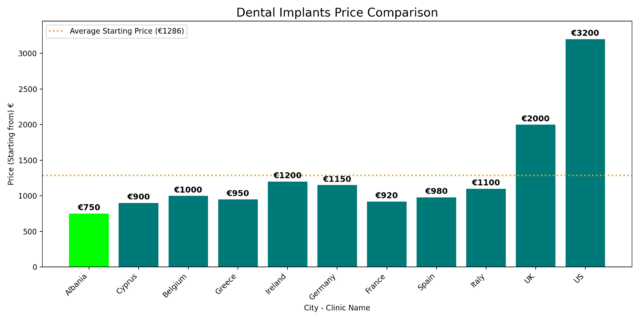
🛈 Select your country from the tabs below for the dental implant price comparison to Albania and Savings Calculator.
How much cheaper are dental implants in Albania vs Italy?
Dental implants in Italy cost from €1100 to €1,500 per implant, averaging at €1,082.50, with higher prices in cities like Milan and Rome.
Additional procedures (crowns, bone grafts) raise total costs, and insurance rarely covers implants.
However, by choosing Excelentis in Tirana, Albania for your dental implants, you can save up to 31.8% or €350 for each implant, while still receiving the same quality of treatment and materials.
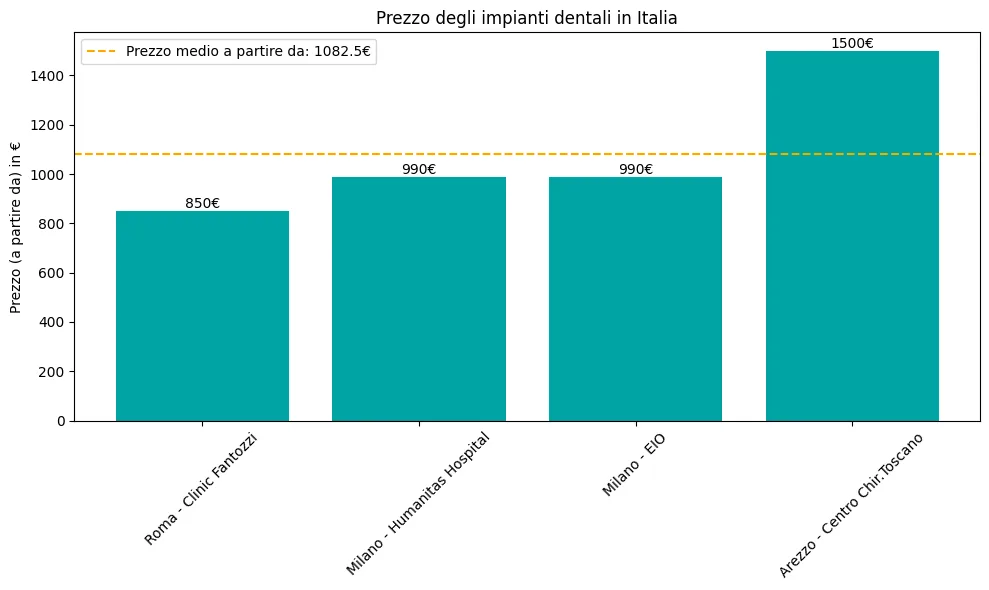
Dental Implant Savings Calculator | Italy vs Albania
| Service | Albania 🇦🇱 | Italy 🇮🇹 | Savings in € | Savings in % |
|---|---|---|---|---|
| - | €- | €- | - | - |
How much cheaper are dental implants in Albania vs France?
Dental implants in France typically cost €655–€1,500 per implant, averaging €1,000, with higher prices in cities like Paris, Nice, and Lyon. Insurance rarely covers implants, and additional procedures (crowns, abutments) increase costs.
However, by choosing Albania for your dental implants, you can save up to 18.5.0% or €170 on costs without compromising on the quality of treatment and materials. This significant cost difference makes Albania an attractive option for dental tourism, providing high-quality care at a fraction of the cost.
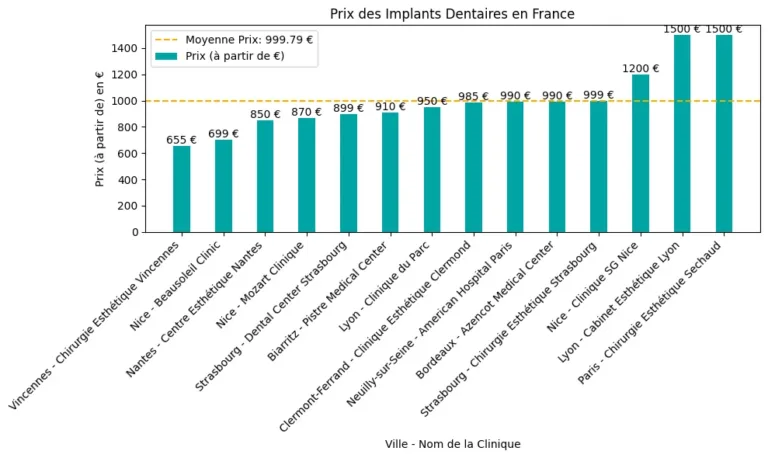
Dental Implant Savings Calculator | France vs Albania
| Service | Albania 🇦🇱 | France 🇫🇷 | Savings in € | Savings in % |
|---|---|---|---|---|
| - | €- | €- | - | - |
How much cheaper are dental implants in Albania vs Germany?
Dental implants in Germany typically cost between €920 and €1,200 per implant, averaging €1950, with full-mouth restorations like All-on-4 reaching €10,000–€21,800. Bone grafts or sinus lifts add €500–€2,500, and public insurance rarely covers implants. However, by choosing Albania for your dental implants, you can save up to 61.5% or €1200 on costs without compromising on the quality of treatment and materials. This significant cost difference makes Albania an attractive option for dental tourism, providing high-quality care at a fraction of the cost.
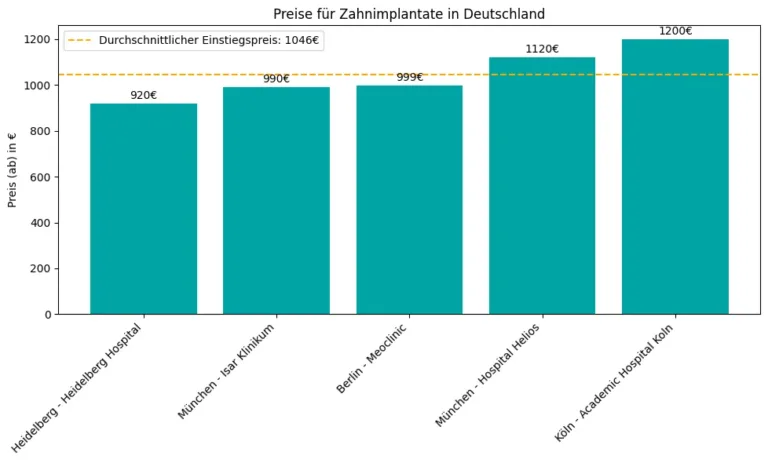
Dental Implant Savings Calculator | Germany vs Albania
| Service | Albania 🇦🇱 | Germany 🇩🇪 | Savings in € | Savings in % |
|---|---|---|---|---|
| - | €- | €- | - | - |
How much cheaper are dental implants in Albania vs UK?
Dental implants in the UK typically cost between £1,850 and £3,000 per implant,averanging £ 3000, with London clinics often charging higher prices. Additional procedures like bone grafts or sinus lifts increase costs, while finance plans make treatment more accessible.
The cost of dental implants can be expensive in the UK. However, by choosing Albania, you can save up to 62.5% or 1250 £ on premium dental treatments, enjoying the same quality of treatment and materials as in the UK.
Dental tourism in Albania offers a cost-effective solution without compromising on the quality of care. This makes it an attractive option for those seeking affordable and high-quality dental implant treatments.
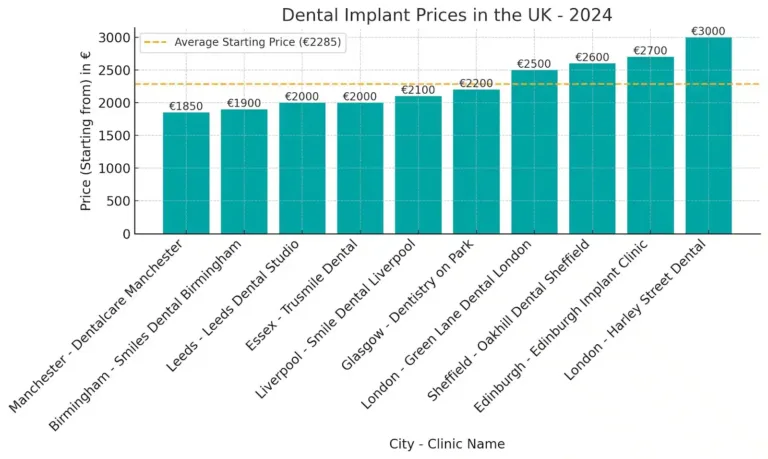
Dental Implant Savings Calculator | UK vs Albania
| Service | Albania 🇦🇱 | UK 🇬🇧 | Savings in € | Savings in % |
|---|---|---|---|---|
| - | €- | £- | - | - |
How much cheaper are dental implants in Albania vs Ireland?
Dental implants in Ireland typically cost between €990 and €1,200 per implant, averanging €2040 with clinics like 3Dental offering prices from €1,540. Prices vary by location (higher in Dublin/Cork), and tax rebates (Med 2 form) or upfront payments can reduce costs by 20-30%. Additional procedures like bone grafts or crowns increase total expenses.
However, by choosing Albania as your dental tourism destination, you can save up to 37.5% or 450 euro on premium dental treatments. This allows you to receive the same quality of treatment and materials that Ireland offers, but at a fraction of the cost.
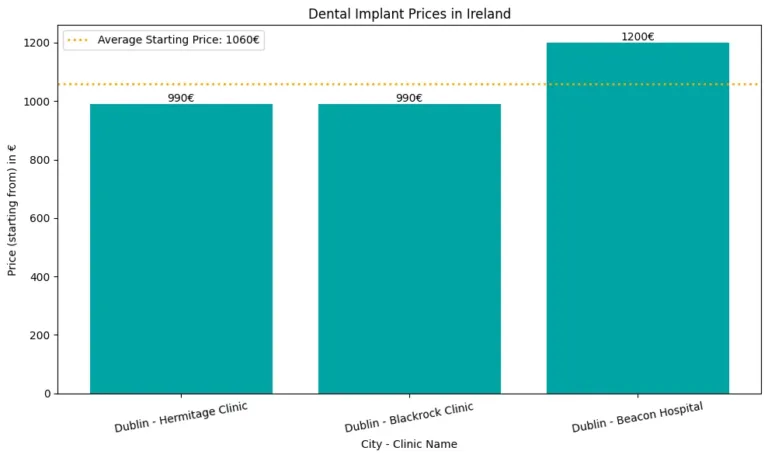
Dental Implant Savings Calculator | Ireland vs Albania
| Service | Albania 🇦🇱 | Ireland 🇮🇪 | Savings in € | Savings in % |
|---|---|---|---|---|
| - | €- | €- | - | - |
How much cheaper are dental implants in Albania vs Cyprus?
Dental implants in Cyprus typically cost between €635 and €910 per implant, averaging €741.67, with higher prices in cities like Nicosia. Additional procedures (bone grafts, crowns) increase costs, and insurance rarely covers implants.
However, by choosing Albania for your dental implants, you can save up to 16.7% or 150 euro on premium quality treatment and materials. This significant cost difference makes Albania an attractive option for those seeking affordable dental care without compromising on quality.
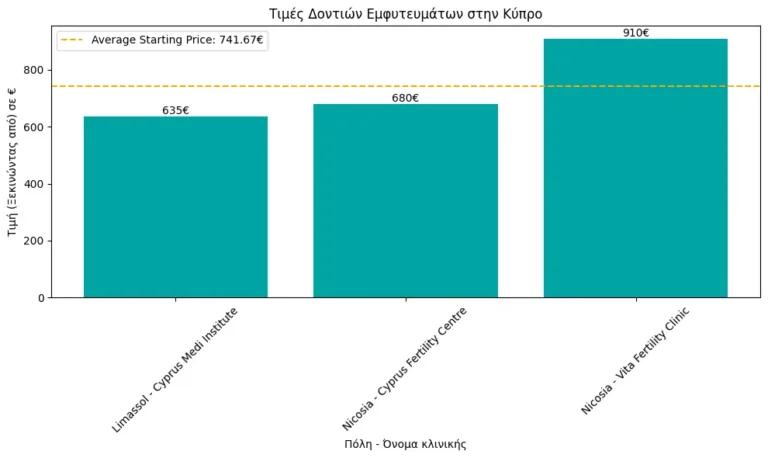
Dental Implant Savings Calculator | Cyprus vs Albania
| Service | Albania 🇦🇱 | Cyprus 🇨🇾 | Savings in € | Savings in % |
|---|---|---|---|---|
| - | €- | €- | - | - |
How much cheaper are dental implants in Albania vs America?
Dental implants in the US typically cost between $3,000 and $6,000 per implant, averanging $3500 with full-mouth restorations like All-on-4 reaching $50,000. Bone grafts add $500-$5,000, and insurance rarely covers implants.
By choosing Albania for your dental implants, you can save up to 76.6% or $2450 , compared to the prices in the United States, while still receiving premium quality materials and treatment.
This substantial cost difference makes Albania an attractive option for dental tourism, allowing you to enjoy high-quality dental care at a fraction of the cost.
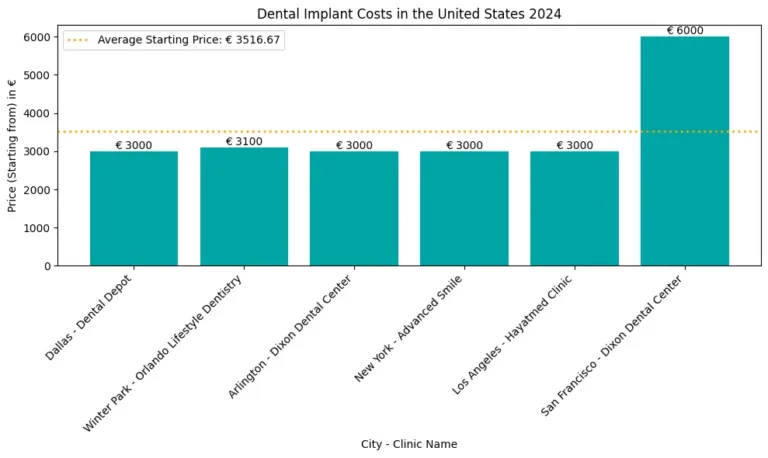
Dental Implant Savings Calculator | America vs Albania
| Service | Albania 🇦🇱 | USA 🇺🇸 | Savings in € | Savings in % |
|---|---|---|---|---|
| - | €- | $- | - | - |
How much cheaper are dental implants in Albania vs Spain?
Dental implants in Spain typically cost between €750 and €1,500 per implant, averanging €1125 with premium clinics in cities like Barcelona and Madrid reaching up to €2,000. Prices vary based on titanium implant quality, clinic location, and additional procedures like bone grafts.
The cost of dental implants in Spain can be expensive, but by choosing Albania, you can save up to 23.5% or €230 on premium dental treatments without compromising on quality.
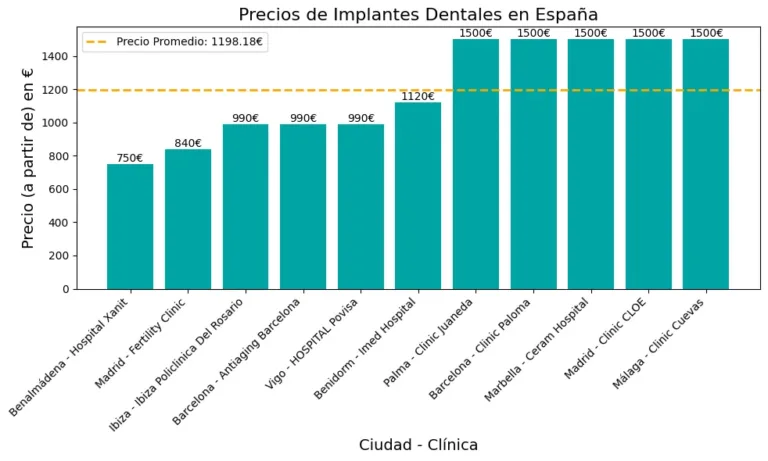
Dental Implant Savings Calculator | Spain vs Albania
| Service | Albania 🇦🇱 | Spain 🇪🇸 | Savings in € | Savings in % |
|---|---|---|---|---|
| - | €- | €- | - | - |
How much cheaper are dental implants in Albania vs Belgium?
Dental implants in Belgium typically cost between €1000 and €1820 per implant, averaging €1300. Prices vary by clinic location, with cities like Brussels often higher. Additional procedures (bone grafts, crowns) increase costs, and insurance rarely covers implants. Albania offers savings up to 25% for comparable quality, attracting dental tourists seeking affordability.
However, by choosing Albania, you can save up to 33.8% or € 315 in premium dental treatments, for the same quality of treatment and materials that Belgium offers. This significant cost difference makes Albania an attractive option for those seeking affordable dental care without compromising on quality.
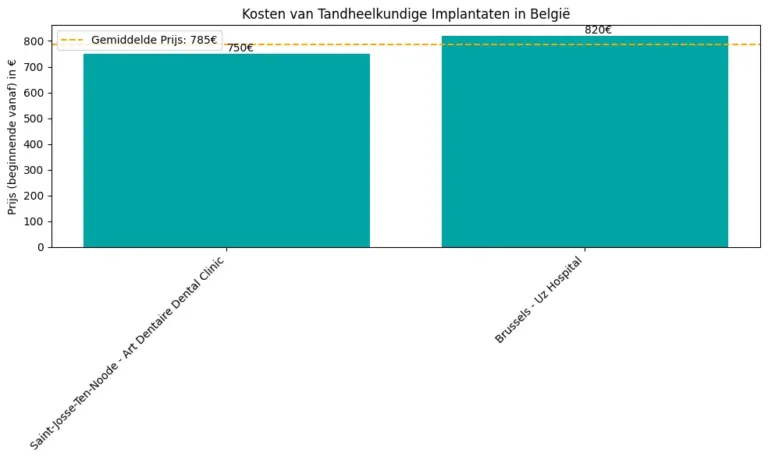
Dental Implant Savings Calculator | Belgium vs Albania
| Service | Albania 🇦🇱 | Belgium 🇧🇪 | Savings in € | Savings in % |
|---|---|---|---|---|
| - | €- | €- | - | - |
How much cheaper are dental implants in Albania vs Greece?
Dental implants in Greece typically cost between €1150 and €1400 per implant, averaging €1201, with higher prices in cities like Athens and Thessaloniki. Additional procedures like bone grafts increase costs, and insurance rarely covers implants.
However, by choosing Albania for dental tourism, you can save up to 34.8% or 400 euro on premium dental treatments, enjoying the same quality of treatment and materials that Greece offers.
This significant cost difference makes Albania an appealing alternative for those looking for affordable dental care without compromising on quality.
By considering dental tourism in Albania, you can access high-quality dental implants at a fraction of the cost in Greece.
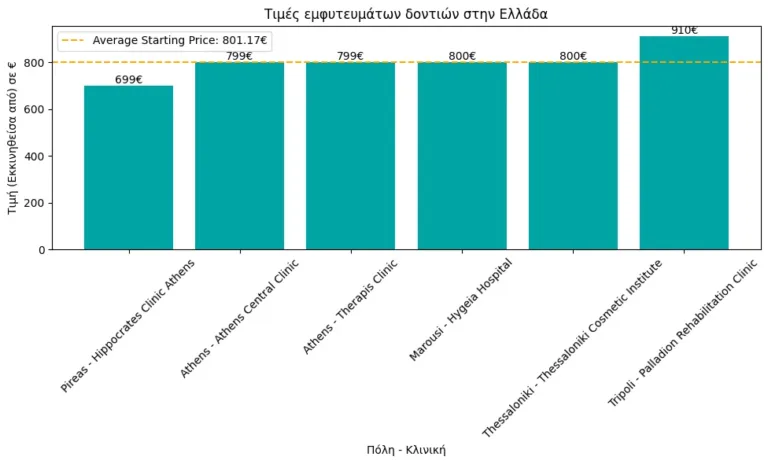
Dental Implant Savings Calculator | Greece vs Albania
| Service | Albania 🇦🇱 | Greece 🇬🇷 | Savings in € | Savings in % |
|---|---|---|---|---|
| - | €- | €- | - | - |
Why Albania's prices are up to 85% cheaper ?
No VAT on Medical Procedures
Albania does not charge VAT on medical procedures, including dental implants in Albania. This significantly reduces treatment costs without compromising service quality.
Lower Clinic Overhead Costs
Dental clinics in Albania operate at lower costs, patients enjoy significantly more affordable dental implants in Albania. These savings go straight to the patient, while maintaining top-notch professionalism and high-quality dental care.
Same EU-Certified Materials
Most clinics in Albania use the same EU-certified materials found in Western countries, including CE-marked dental implants recognized for their safety and performance. This ensures that patients choosing dental implants in Albania benefit from treatments meeting European standards for quality, durability, and reliability. Combined with Albania’s lower operating costs, it creates an exceptional balance between affordability and top-tier clinical outcomes
Factors affecting the cost of Dental Implants:
Geographic Location
Number of Implants Required
Number of Implants Required: The number of dental implants needed will influence the overall cost. Whether you need a single implant, multiple implants, or a full arch replacement, your treatment plan will be tailored to your specific needs.
Materials Used
Materials Used: The type of dental implant and restoration materials chosen can affect the cost. High-quality materials may have a higher price tag but offer enhanced durability and aesthetic appeal.
Additional Procedures
Additional Procedures: In some cases, additional procedures like bone grafting or tooth extractions may be necessary before the implant placement. These supplementary treatments can incur extra costs.
Why choose Excelentis in Albania for dental implants in 2026 ?
Excelentis in Albania offers dental implants with exceptional clinical outcomes (0.31% complication rate vs. 1.2% EU average), EU-certified specialists, and advanced 3D guided surgery (99.1% precision). International patients benefit from comprehensive safety protocols (0% infection rate in 2024), premium care at 75% lower costs than EU/US prices, and convenient all-inclusive dental tourism packages with VIP transfers.
Clinical Excellence
- Excelentis achieves a 0.31% complication rate—74% lower than the 1.2% EU average
- 99.7% implant success rate verified by EU standards
- Zero infection record across 507 cases in 2026
EU-Certified Team
- EU-certified team of specialists with 15+ years of collective experience
- 98.9% patient satisfaction rating across independent evaluations
- Successfully completed 600+ procedures in 2026
Technology
- Excelentis' advanced 3D guided implant technology achieves 99.1% precision placement
- Integrated CT/CAD/CAM surgical guides ensure optimal implant positioning
- Technology facilitates accelerated healing times post-surgery
Safety
- Exceeding EU safety standards through rigorous protocol compliance
- Zero cross-infection incidents recorded during 2024 audits
- Continuous monitoring and rapid-response systems for patient protection
Strategic Location
- Central medical tourism hub with easy flight connections
- Close to top-rated accommodations
- Accessible transport for hassle-free follow-ups
All-Inclusive Dental Tourism in Albania
For treatments over €4,000:
- Free flights from Europe
- Free luxury accommodation
- Free VIP transfers airport-hotel-clinic
- Free 3D planning and consultation
Before & After: Excelentis Patient Transformations
Drag the arrows in the image to slide between before and after.
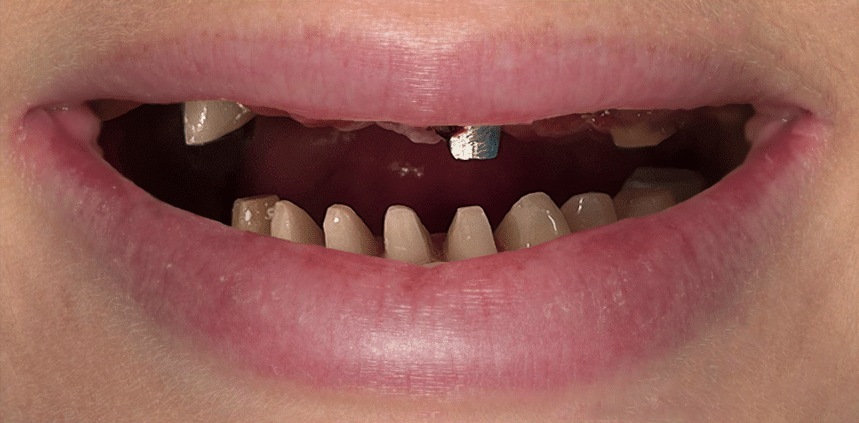
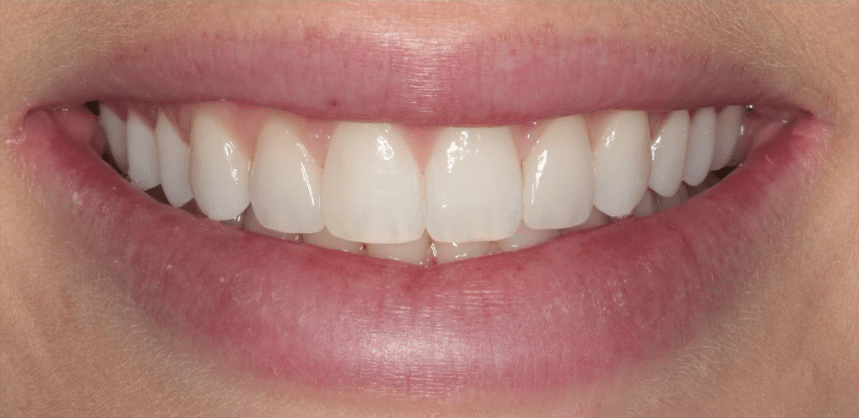
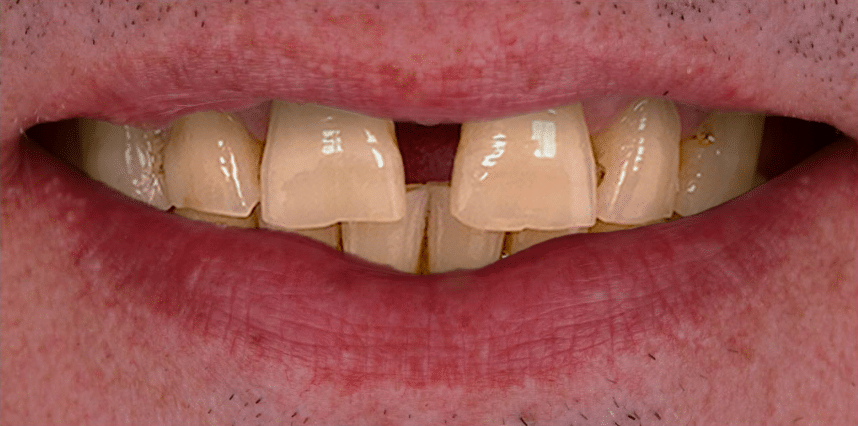
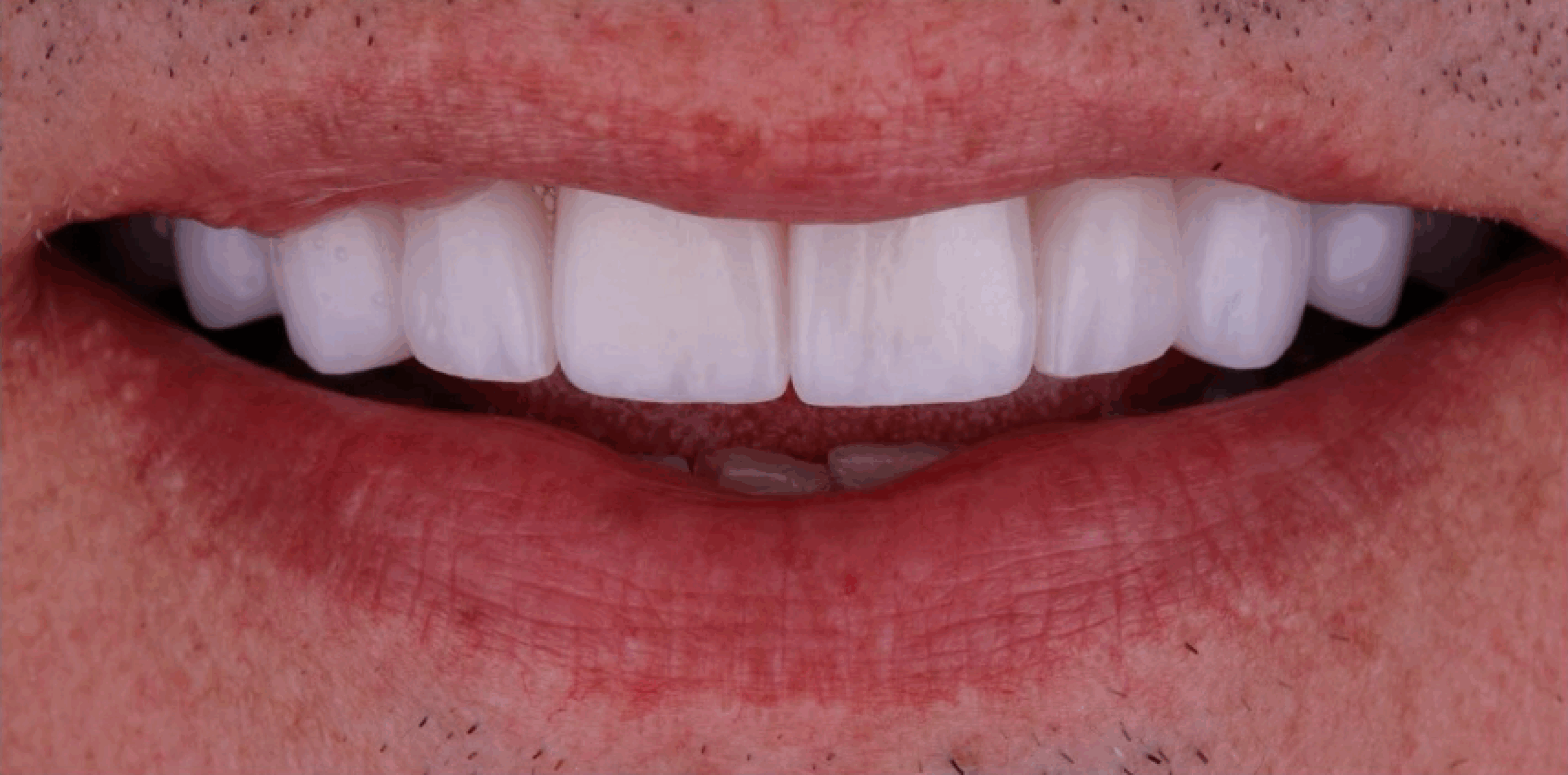
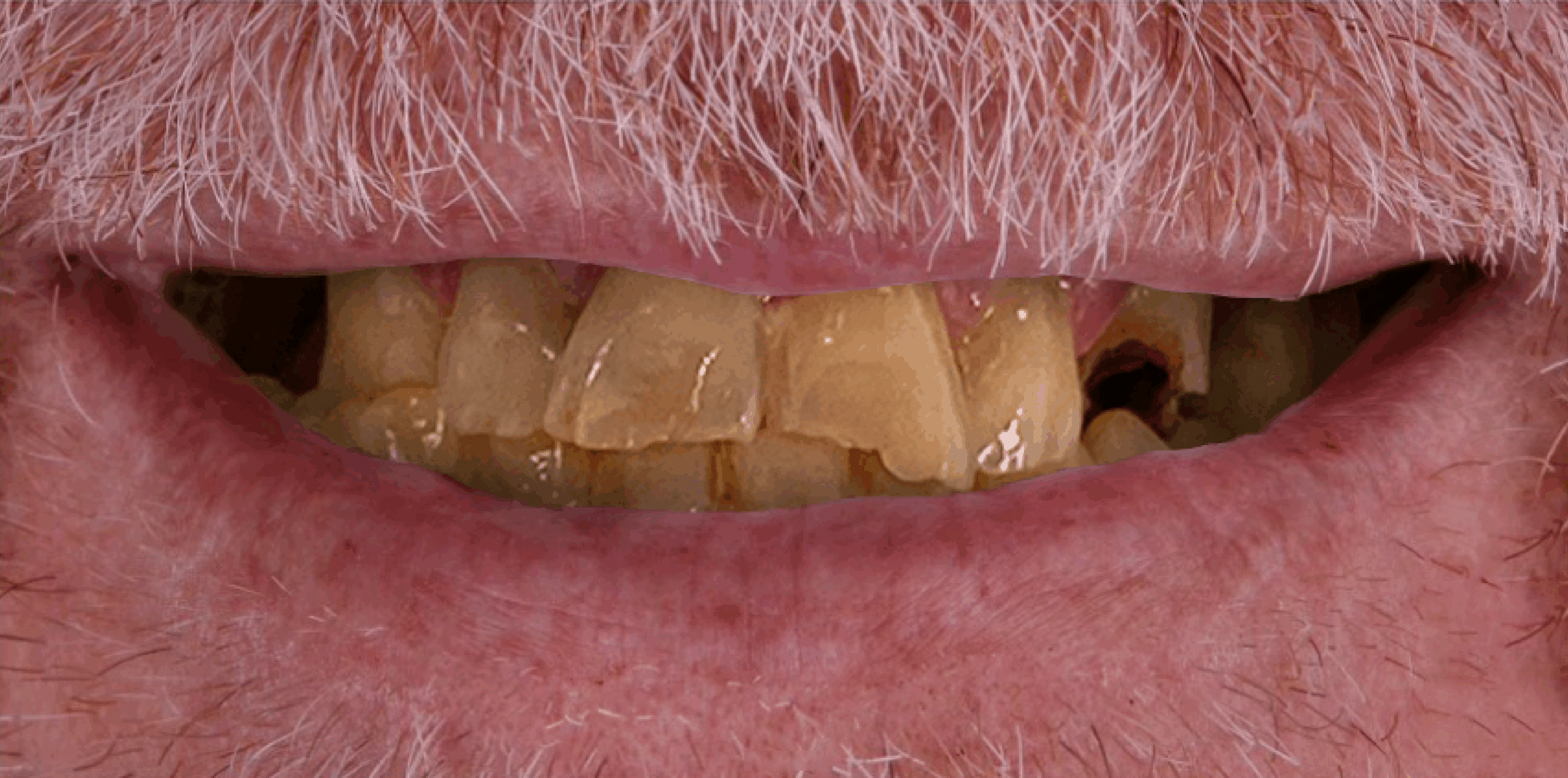
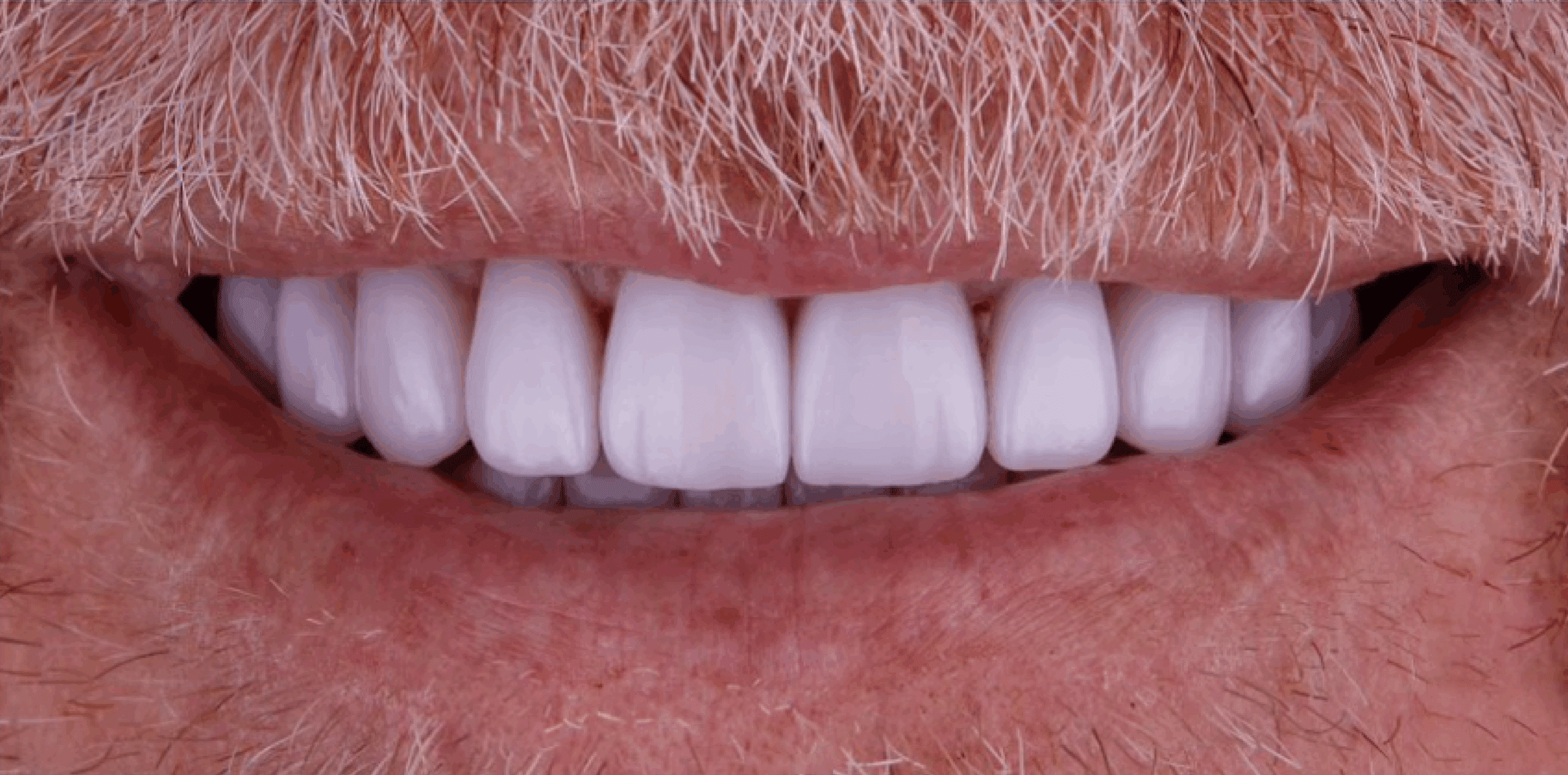
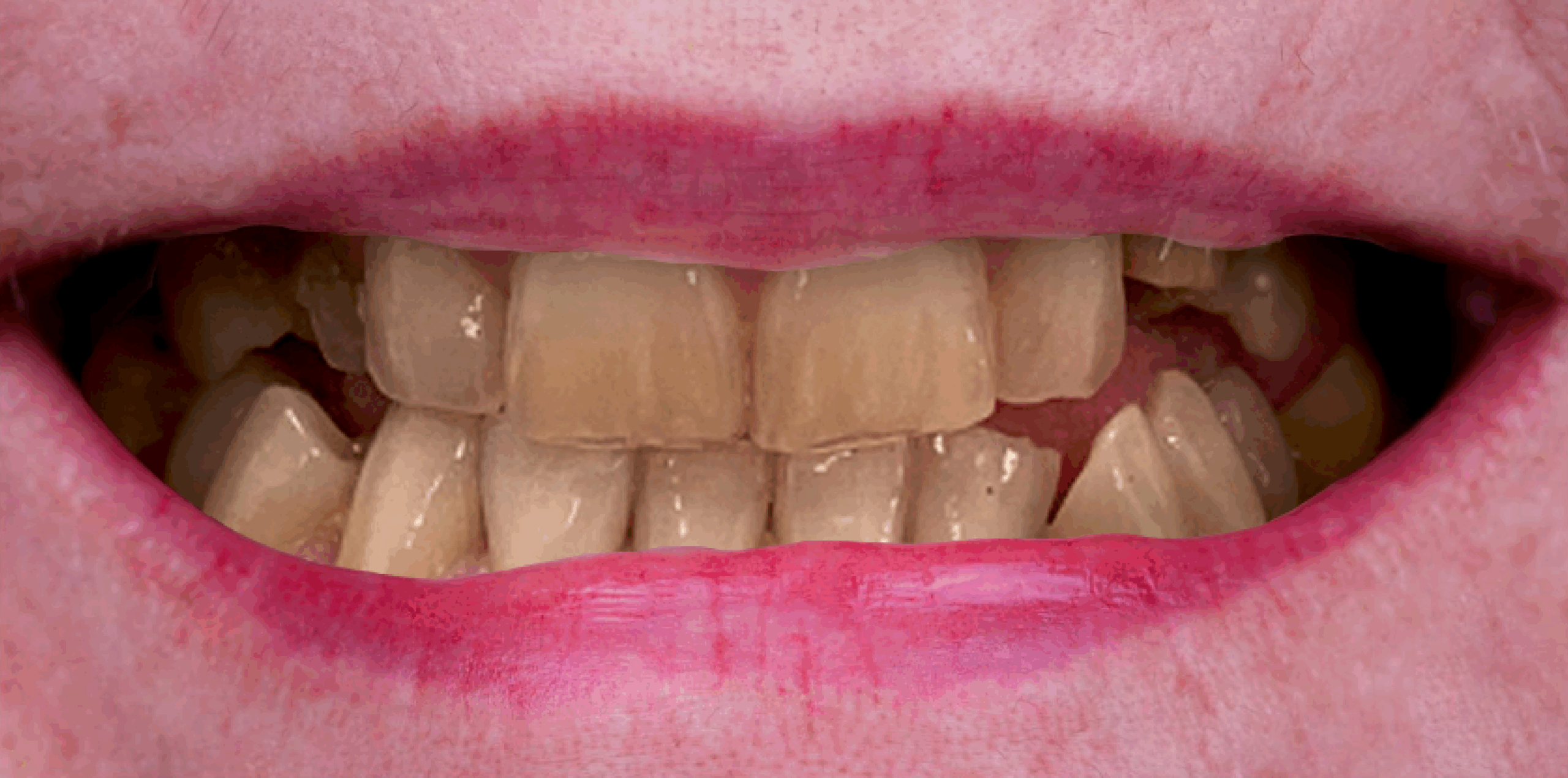
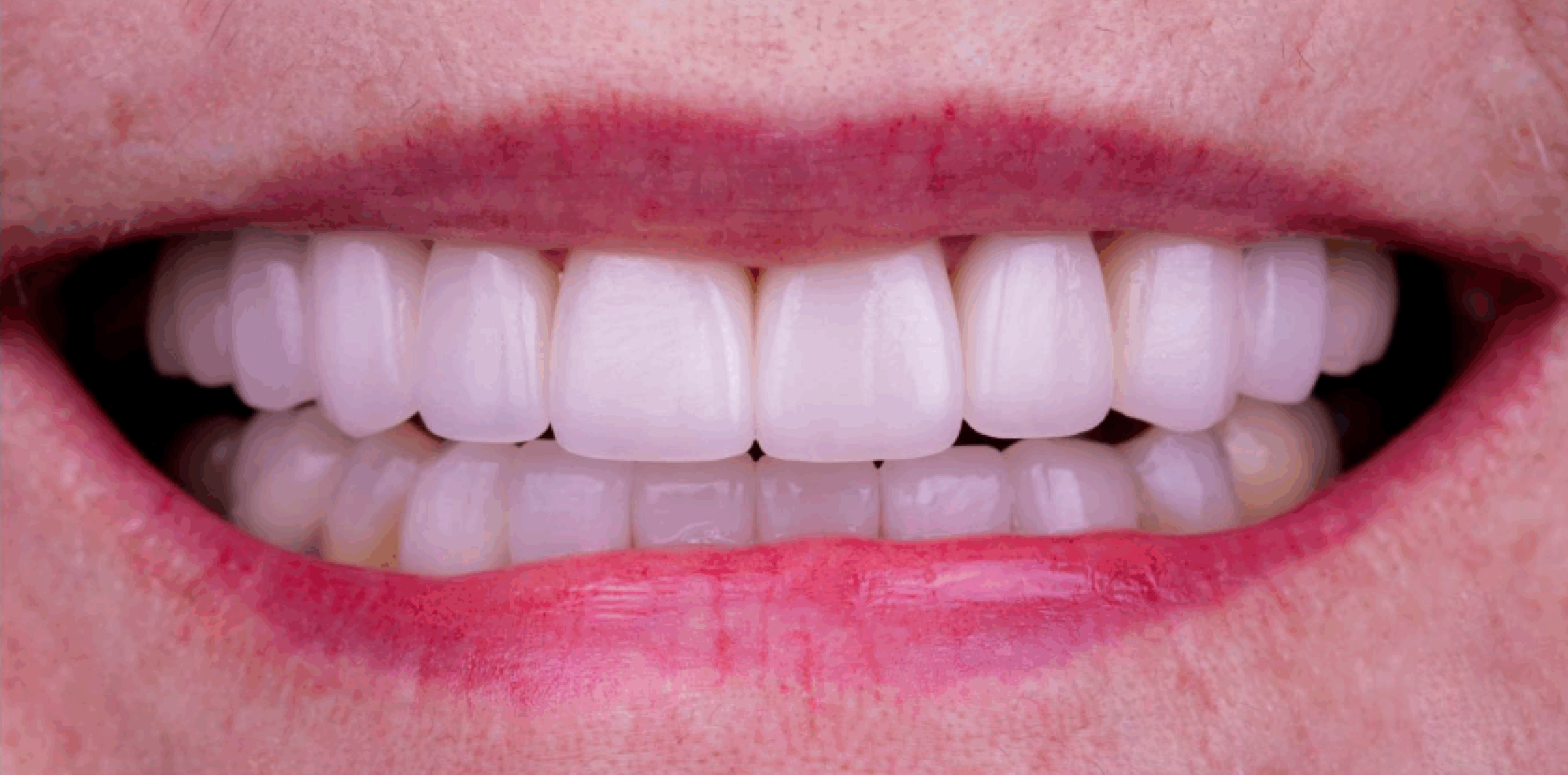
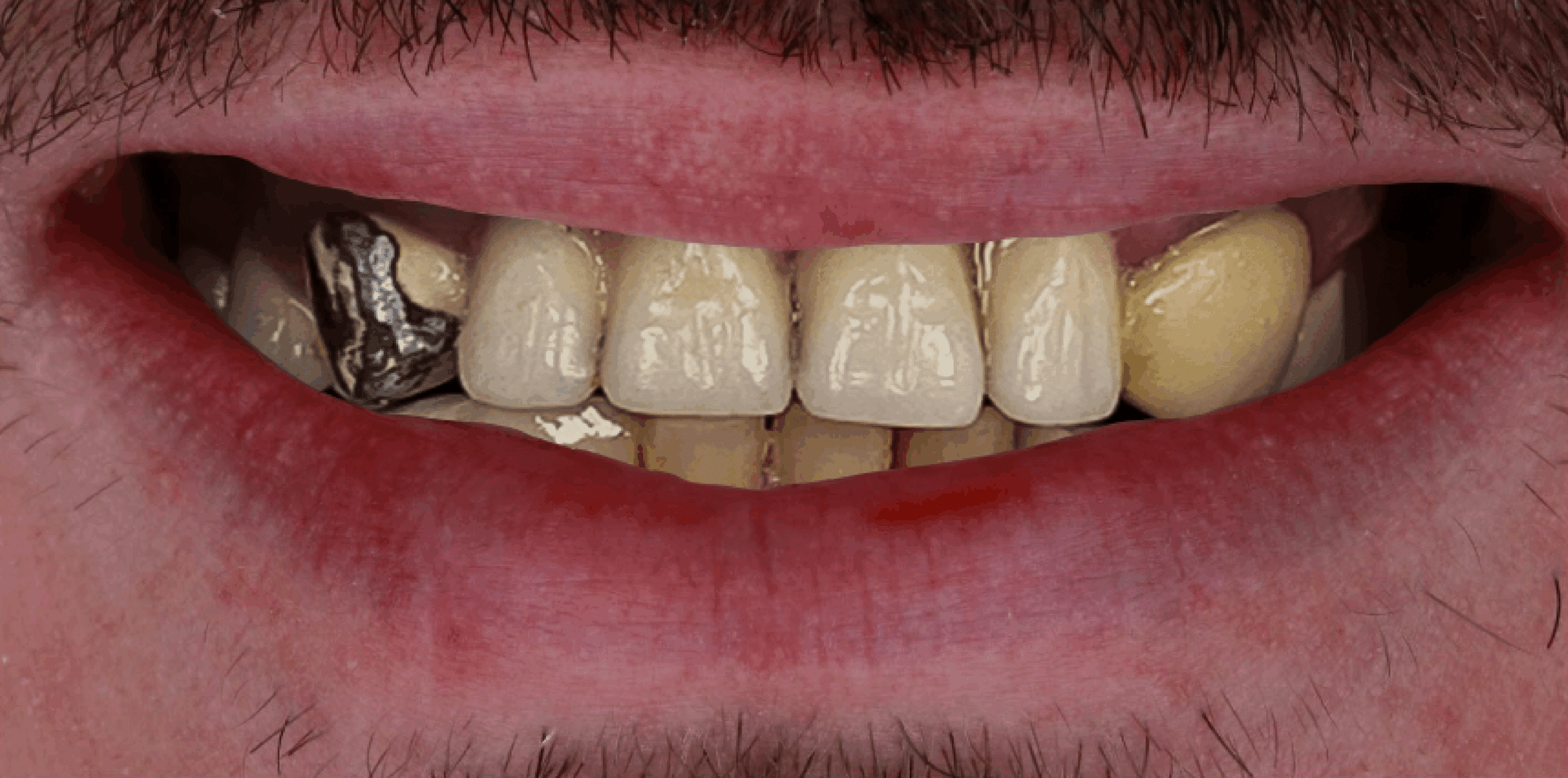
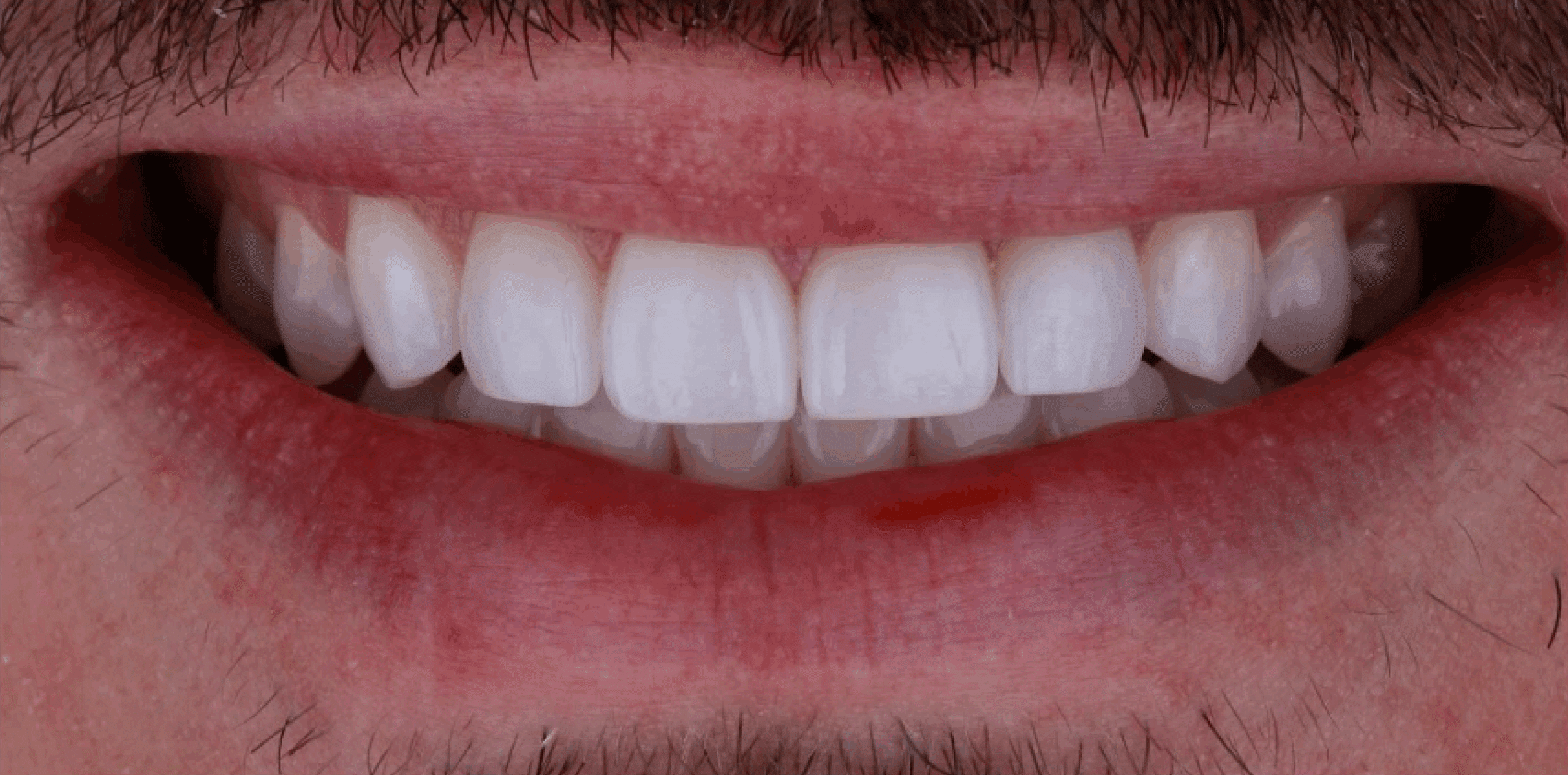
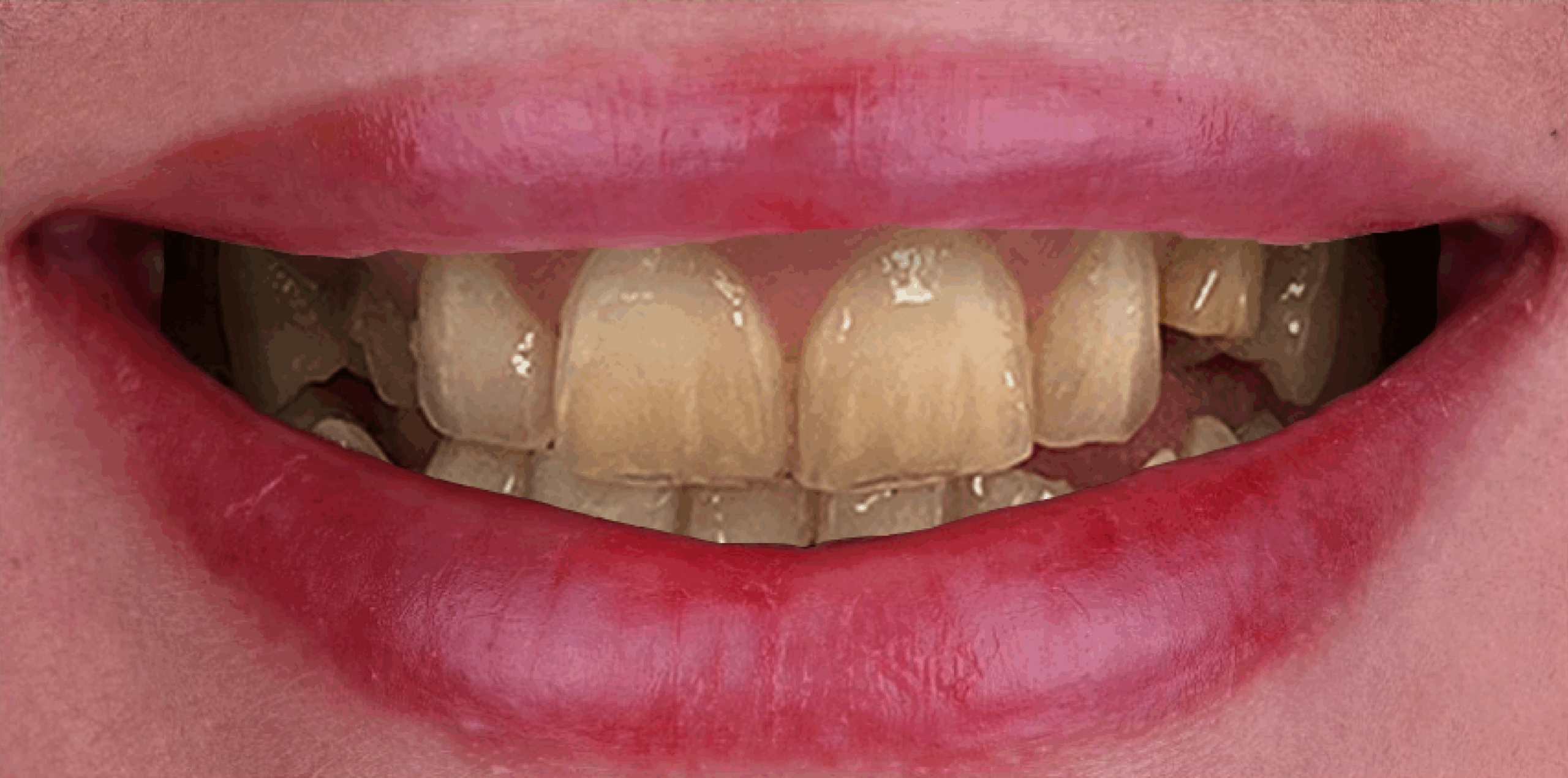
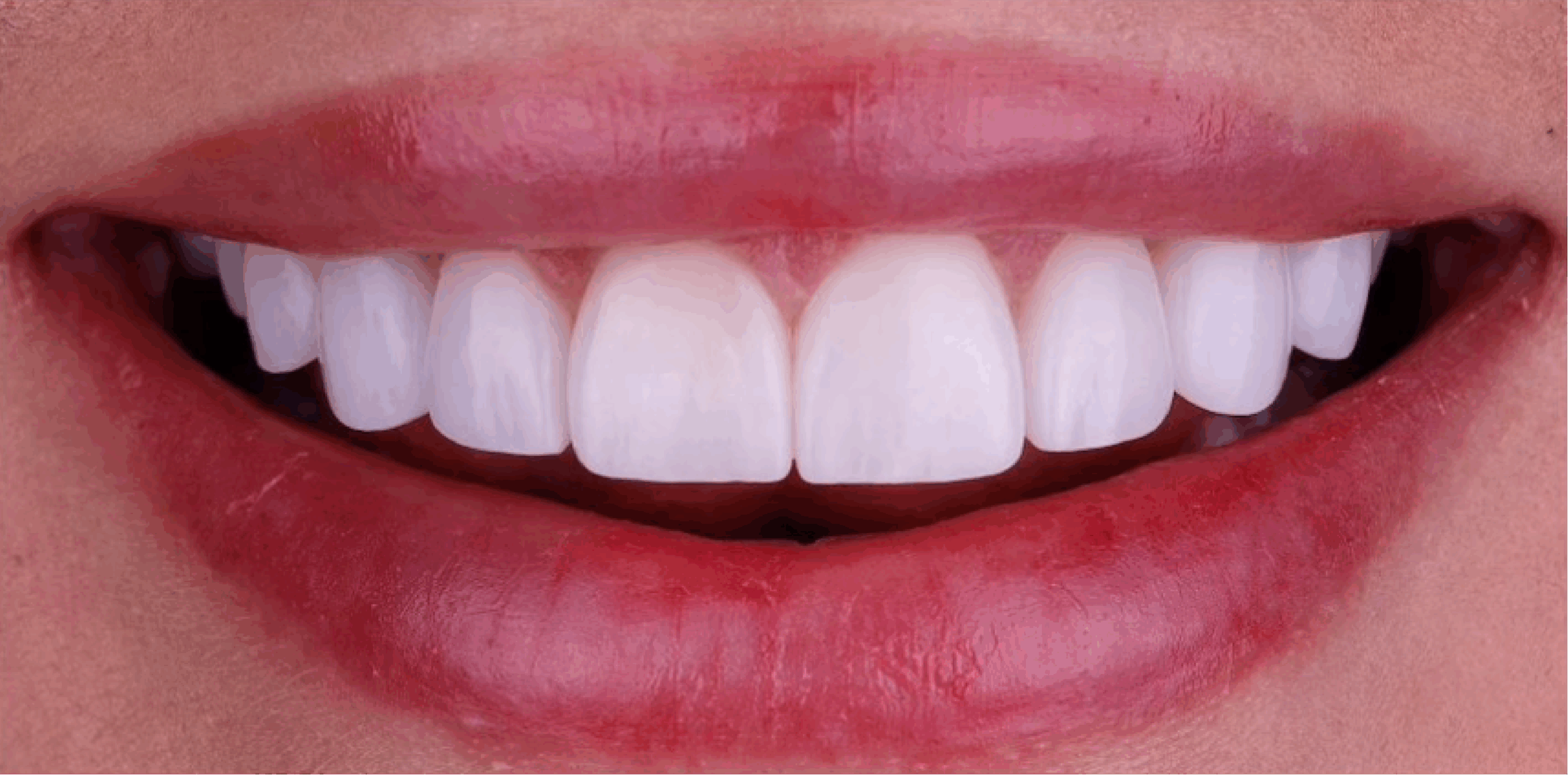
Excelentis: Dental Implants In Tirana/Albania Reviews

Da Excelentis a Tirana curiamo ogni fase del percorso con standard elevati di igiene, coordinamento preciso e assistenza costante per garantire un’esperienza serena e ben strutturata. Restiamo sempre a disposizione.
— Excelentis Dental Center

Da Excelentis a Tirana ci impegniamo ogni giorno per offrire qualità clinica, organizzazione precisa e un’esperienza serena dall’inizio alla fine del percorso. Restiamo sempre a disposizione.
— Excelentis Dental Center

Da Excelentis a Tirana pianifichiamo ogni trattamento con precisione, competenza clinica e attenzione personalizzata, per garantire risultati duraturi e un’esperienza organizzata in ogni dettaglio. Restiamo sempre a disposizione.
— Excelentis Dental Center

Da Excelentis a Tirana lavoriamo in sinergia, dal primo contatto fino al completamento del trattamento, integrando pianificazione clinica, coordinamento organizzativo e ambienti moderni per offrire un’esperienza strutturata, sicura e orientata all’eccellenza. La sua fiducia è il nostro valore più grande.
— Excelentis Dental Center

Comincio dall’accoglienza telefonica che ho ricevuto da Alisa che mi ha supportato durante tutto il percorso e devo dire che è grazie a lei se ho avuto il coraggio di iniziare, di una dolcezza e professionalità unica.
Altra accoglienza da Eros che mi ha accolto all’aeroporto rendendosi disponibile per ogni cosa, oltre che simpaticissimo. Fino ad arrivare a tutta l’equipe medica in clinica che hanno saputo rasserenarmi e soddisfare le mie richieste. Oggi a distanza di tre mesi posso affermare che HO FATTO BENE A FIDARMI ❣️ GRAZIE GRAZIE E ANCORA GRAZIE EXCELENTIS ❣️
Da Excelentis a Tirana strutturiamo ogni riabilitazione con pianificazione precisa, tecnologia avanzata e un accompagnamento costante prima, durante e dopo le cure, perché la fiducia del paziente è il nostro valore più grande. Restiamo sempre a disposizione.
— Excelentis Dental Center

Da Excelentis a Tirana curiamo ogni dettaglio, dall’organizzazione agli spazi moderni e accoglienti, per offrire un percorso odontoiatrico di alta qualità. Restiamo sempre a disposizione.
— Excelentis Dental Center

Da Excelentis a Tirana garantiamo cure dentali di alta qualità, coordinamento preciso e assistenza costante, affinché ogni esperienza sia serena e ben strutturata dall’arrivo fino al termine del trattamento. Restiamo sempre a disposizione.
— Excelentis Dental Center

Da Excelentis a Tirana garantiamo coordinamento preciso, qualità clinica e assistenza costante in ogni fase del percorso. Restiamo sempre a disposizione.
— Excelentis Dental Center

Non vedo l'ora di tornare per finire il lavoro. Grazie
Christian
Da Excelentis a Tirana costruiamo percorsi odontoiatrici strutturati, integrando eccellenza clinica, coordinamento dedicato e comfort logistico, affinché ogni paziente viva l’esperienza con serenità e sicurezza. La aspettiamo per completare il trattamento.
— Excelentis Dental Center

Da Excelentis a Tirana lavoriamo ogni giorno per garantire qualità clinica, organizzazione precisa e un’accoglienza che faccia sentire ogni paziente sereno e seguito. Restiamo sempre a disposizione.
— Excelentis Dental Center

Anche se ho in lavoro molto lungo...la prima impressione è super positiva
Grazie alla mia consulente Flora per essere sempre presente e con una pazienza incredibile.,posso dire che senza di lei probabilmente non avrei percorso questa strada...e come non ringraziare super Eros sempre disponibile ...simpaticissimo,e super professionale
Da Excelentis a Tirana pianifichiamo ogni trattamento in modo strutturato e progressivo, garantendo supporto costante, competenza clinica e un’organizzazione attenta in ogni fase del percorso. Restiamo sempre a disposizione.
— Excelentis Dental Center

Da Excelentis a Tirana accompagniamo ogni paziente con attenzione, organizzazione e competenza clinica, creando un ambiente professionale ma familiare. Sarà un piacere rivedervi quest’estate. Un caro saluto ad Alghero!
— Excelentis Dental Center

Da Excelentis a Tirana uniamo competenza clinica, coordinamento preciso e attenzione al paziente per garantire un percorso ben organizzato e risultati naturali e duraturi. Restiamo sempre a disposizione.
— Excelentis Dental Center

Da Excelentis a Tirana uniamo organizzazione precisa, competenza clinica e attenzione personalizzata, perché ogni paziente possa vivere l’esperienza in totale serenità e con risultati di alta qualità. Restiamo sempre a disposizione.
— Excelentis Dental Center

Da Excelentis a Tirana accompagniamo ogni paziente con organizzazione, tecnologia avanzata e presenza costante in ogni fase del percorso, perché nessuno si senta mai solo. Restiamo sempre a disposizione.
— Excelentis Dental Center

Poi a partire da chi ci ha preso e portato all'aeroporto,a tutto lo staff della clinica, si dottori,tutto efficiente, e per finire, tutti i conforti(appartamento a disposizione gratuito), biglietto aereo rimborsato e tutta la gentilezza mostrata. Lo consiglio a tutti , perché i costi sono molto vantaggiosi
Bravi bravi bravi
Da Excelentis a Tirana strutturiamo ogni esperienza in modo completo, integrando pianificazione delle cure, supporto logistico e qualità clinica, così da offrire un servizio efficiente, trasparente e conveniente. Restiamo sempre a disposizione.
— Excelentis Dental Center

Da **Excelentis** a Tirana integriamo tecnologia avanzata, pianificazione precisa delle cure e supporto organizzativo completo, così da offrire un’esperienza strutturata, sicura e orientata al risultato. Restiamo sempre a disposizione.
— Excelentis Dental Center

Rapidement prise charge par Silvia et Nada💚.La clinique est impeccable, rien à dire 👌Les chirurgiens dentistes m ont fait un diagnostique réaliste et ont été d un grand professionnalisme.
Résultat, un travail en 3 phases, je viens de finir la première, je reviens dans 4 mois..
avec grand plaisir. Aussi découvrir Tirana qui a été une grande surprise, c’est une ville très dynamique et les gens sont agréable.
Merci à vous tous 😎
Chez Excelentis à Tirana, nous mettons un point d’honneur à offrir un parcours structuré et transparent, alliant expertise chirurgicale, organisation complète du séjour et accompagnement humain à chaque étape. Nous aurons grand plaisir à vous accueillir pour la deuxième phase.
— Excelentis Dental Center

Da Excelentis a Tirana coordiniamo ogni fase del percorso, dall’arrivo alla pianificazione delle cure, garantendo attenzione, qualità clinica e un’assistenza continua. Restiamo sempre a disposizione.
— Excelentis Dental Center

Da Excelentis a Tirana lavoriamo ogni giorno per offrire qualità clinica, organizzazione impeccabile e un’esperienza serena dall’inizio alla fine del percorso. Restiamo sempre a disposizione.
— Excelentis Dental Center

Da Excelentis a Tirana garantiamo un percorso curato in ogni dettaglio, con attenzione, competenza clinica e assistenza costante per un’esperienza serena e di qualità. A presto!
— Excelentis Dental Center

Da Excelentis a Tirana uniamo aggiornamento costante, qualità clinica e attenzione personalizzata per accompagnare ogni paziente verso un sorriso naturale e luminoso. La aspettiamo per completare il percorso.
— Excelentis Dental Center

Personale molto cordiale, dottori gentilissimi e altamente qualificati.
La consiglierei al 100%
Da Excelentis a Tirana garantiamo competenza clinica, ambienti moderni e un’attenzione costante al paziente per offrire un’esperienza sicura e di qualità. Restiamo sempre a disposizione.
— Excelentis Dental Center

Da Excelentis a Tirana lavoriamo ogni giorno per offrire qualità clinica, organizzazione impeccabile e un’esperienza serena dall’inizio alla fine del percorso. Restiamo sempre a disposizione.
— Excelentis Dental Center

Da Excelentis a Tirana uniamo tecnologia avanzata, ambienti moderni e protocolli rigorosi di igiene a un approccio umano e attento, per accompagnare ogni paziente verso un nuovo sorriso in totale sicurezza. La aspettiamo con piacere per la seconda fase.
— Excelentis Dental Center

Eros all'accoglienza con pulmino fantastico tutto lo staff medico molto professionale
Credo che sia un ottima clinica prossimamente potrò essere più preciso ma per ora tutto molto soddisfacente
Da Excelentis a Tirana seguiamo ogni paziente con attenzione costante, chiarezza e competenza clinica, così da garantire un percorso ben strutturato fin dal primo contatto. Restiamo sempre a disposizione.
— Excelentis Dental Center

Da Excelentis a Tirana accompagniamo ogni paziente in ogni fase del percorso, unendo professionalità clinica, organizzazione impeccabile e un’assistenza costante che rende l’esperienza serena e di qualità. Restiamo sempre a disposizione.
— Excelentis Dental Center

Da Excelentis a Tirana uniamo professionalità, accoglienza e attenzione personalizzata per garantire un percorso sereno e di qualità. Restiamo sempre a disposizione.
— Excelentis Dental Center

Da Excelentis a Tirana ci impegniamo a unire competenza clinica, cortesia e un supporto dedicato, così da offrire un percorso chiaro, confortevole e di alta qualità. Restiamo sempre a disposizione.
— Excelentis Dental Center

Da Excelentis a Tirana lavoriamo per garantire trattamenti accurati, comfort in ogni fase e un supporto costante che renda l’intero percorso chiaro e sereno. Restiamo sempre a disposizione.
— Excelentis Dental Center

Da Excelentis a Tirana ci impegniamo a offrire qualità clinica, organizzazione e un accompagnamento attento in ogni passaggio del percorso, così da garantire comfort e risultati affidabili. La aspettiamo per completare insieme la seconda fase.
— Excelentis Dental Center

Uno staff veramente preparato e professionale..volevo ringraziare tutti dal call center che mi ha seguito nella pratica passo dopo passo ... A tutto lo staff della clinica Excelentis ...grazie di cuore 🙏
Da Excelentis a Tirana accompagniamo ogni paziente passo dopo passo, garantendo organizzazione, competenza e un supporto continuo per un’esperienza serena. Restiamo sempre a disposizione.
— Excelentis Dental Center

Da Excelentis a Tirana offriamo un percorso completo e attento, unendo preparazione clinica, cura del paziente e risultati naturali per trasformare il sorriso in totale serenità. A presto!
— Excelentis Dental Center

Volevamo ringraziare anche l'autista Eros, che è stato puntuale e molto disponibile.
Volevo ringraziare Fabio per la sua gentilezza e la sua disponibilità nei miei confronti , e ci ha trasmesso sicurezza nello svolgere questo percorso nella clinica dentale.
Consigliamo vivamente questa clinica!
Da Excelentis a Tirana accompagniamo ogni paziente con professionalità, empatia e attenzione continua, per garantire un percorso sereno e risultati di alta qualità. La aspettiamo per completare insieme il sorriso.
— Excelentis Dental Center

Da Excelentis a Tirana accompagniamo ogni paziente con chiarezza, attenzione e competenza, offrendo trattamenti indolori e risultati di alta qualità. Restiamo sempre a disposizione.
— Excelentis Dental Center

Da Excelentis a Tirana uniamo competenza odontoiatrica, organizzazione e accoglienza per offrire un percorso sereno e curato in ogni dettaglio. Restiamo sempre a disposizione.
— Excelentis Dental Center

Grazie Eros e a tutta l’equipe Excelentis… non vediamo l’ora di ritornare
Da Excelentis a Tirana ci impegniamo a garantire un’esperienza completa e senza stress, unendo competenza clinica, comfort logistico e attenzione personalizzata. Vi aspettiamo con piacere per la prossima visita.
— Excelentis Dental Center

Inoltre un servizio di navetta dall'aeroporto in clinica con un autista personale (eros) veramente eccezionale ragazzo super educato è disponibile ad ogni momento grazie di vero cuore a tutti.
Mi avete ridato il sorriso che mi mancava. ❤️❤️❤️❤️❤️
Da Excelentis a Tirana accompagniamo ogni paziente con professionalità, comfort e attenzione costante, dall’arrivo in aeroporto fino al completamento del trattamento. Restiamo sempre a disposizione.
— Excelentis Dental Center

Grazie ancora a tutto lo staff!
Da Excelentis a Tirana curiamo ogni dettaglio, dall’organizzazione al trattamento, per garantire comfort, qualità e un sorriso in totale serenità. Restiamo sempre a disposizione.
— Excelentis Dental Center

Da Excelentis a Tirana offriamo trattamenti odontoiatrici di alta qualità con attenzione, comfort e professionalità in ogni fase del percorso. Restiamo sempre a disposizione.
— Excelentis Dental Center

Ciò che però ho apprezzato più di tutto è l’umanità che si respira. In questa clinica non sei un semplice numero o un cliente qualsiasi: tutti ti chiamano per nome, si interessano sinceramente al tuo stato di salute e si assicurano che tu ti senta a tuo agio in ogni momento. Questo approccio empatico e autentico rende l’esperienza molto più serena e personale.
Un ringraziamento speciale va al dottor Zonja, la mano esperta che ha curato con grande competenza e precisione tutta la parte chirurgica, e al dottor Hobdari, che ha seguito la parte odontoiatrica con professionalità, pazienza e una straordinaria umanità, ha una mano davvero sicura ma molto delicata :-). Entrambi sono riusciti a trasmettere calma, fiducia e attenzione, qualità che fanno la differenza.
Un grazie di cuore anche ad Alisa, la mia consulente e il mio punto di riferimento sin dal primo contatto: un vero angelo, sempre disponibile, gentile e paziente. La sua sicurezza e professionalità mi trasmesso fiducia fin da subito, ed è anche grazie a lei se ho scelto di iniziare questo percorso. Mi ha accompagnata e rassicurata in ogni fase, rendendo tutto più semplice e chiaro.
Lo staff nel suo insieme è qualcosa di eccezionale: dalle assistenti alla poltrona, sempre sorridenti e attente, a Dena, che con grande comprensione e organizzazione è riuscita a gestire al meglio tutte le mie esigenze, fino a Eros, il nostro autista il nostro driver che diventa un amico. Oltre ad essere estremamente preciso e puntuale nelle indicazioni per l’arrivo e i punti di ritrovo, Eros è anche un’ottima guida per scoprire e visitare Tirana, una città davvero splendida, e un punto di riferimento prezioso per qualsiasi esigenza. Tutto lo staff parla un eccellente italiano, rendendo la comunicazione semplice e immediata.
Un capitolo a parte merita l’appartamento in cui sono ho alloggiato: super bello, comodo, moderno, pulito, recentemente ristrutturato e perfetto per raggiungere ogni servizio e visitare la città.
In conclusione, consiglio questa clinica a chiunque cerchi non solo altissima professionalità e competenza, ma anche umanità, empatia e attenzione sincera verso il paziente. È raro trovare un ambiente in cui ci si senta così accolti, ascoltati e seguiti — e qui, posso dirlo con certezza, accade davvero.
Da Excelentis a Tirana mettiamo al centro ogni paziente, unendo competenza clinica, tecnologie avanzate e un approccio umano che fa sentire accolti e sicuri in ogni fase del percorso. Restiamo sempre a disposizione.
— Excelentis Dental Center

Gentilezza e empatia hanno prevalso..
Andrea mi ha organizzato il viaggio,transfer e soggiorno,delucidandomi giorno per giorno il percorso che avrei affrontato.
Lavoro eccellente, clinica e soggiorno impeccabili a un terzo di quello che avrei speso in Italia.
Poi Eros il nostro autista si è prodigato ad accontentare tuuuutteee le nostre richieste.grazie
In clinica a partire dalla hall ai medici infermieri ed assistenti sono stati tutti gentilissimi e professionali.
Parlavano tutti un italiano impeccabili meglio del mio😅
Da Excelentis a Tirana accompagniamo ogni paziente passo dopo passo, offrendo professionalità, trasparenza e risultati di qualità a costi competitivi rispetto all’Italia. Restiamo sempre a disposizione.
— Excelentis Dental Center

Da Excelentis a Tirana ci impegniamo a offrire un’esperienza odontoiatrica attenta e personalizzata, dove professionalità, empatia e tecnologia avanzata si uniscono per garantire comfort e risultati duraturi. La aspettiamo alla prossima visita.
— Excelentis Dental Center

A Tirana offriamo un percorso odontoiatrico completo, dove competenza medica, comfort del paziente e qualità dei materiali si uniscono per creare un’esperienza sicura e senza stress. Restiamo sempre a disposizione.
— Excelentis Dental Center

Siamo arrivati in clinica e la ancora più perfetta .Alla reception c'è Nada,bravissima persona .
I medici uno più bravo dell'altro ,grazie Dany ,sei il top.
Per dormire hanno i loro appartamenti, nuovissimi ,super comodi e bella vista su Tirana.
Tutto a portata di mano ,clinica,ristorante Bistro,appartamenti, super Market,tutto la senza che ti sposti .
Grazie di tutto
Vi vonsiglieto a tutti
A Tirana offriamo turismo dentale all-inclusive con materiali certificati italiani e laboratorio interno. Restiamo a disposizione per controlli e follow-up.
— Excelentis Dental Center

A Tirana (Albania) offriamo turismo dentale all-inclusive con materiali certificati italiani, laboratorio interno e supporto continuo. Restiamo a disposizione per controlli e follow-up.
— Excelentis Dental Center

Ho affrontato ben 7 estrazioni senza mai sentire dolore, grazie alle loro mani d’oro! Un ringraziamento speciale ad Aldo, il mio riferimento, sempre disponibile e collaborativo in ogni fase, così come tutto lo staff, sia in clinica che per i vari spostamenti.
Se cercate una nuova bocca con materiali di qualità italiana e un team sempre a disposizione, la consiglio al 100%!
Un ringraziamento speciale ad Eros, il nostro uomo guida che ci ha portato e riportato e ci ha seguito in loco per tutte le necessità! Lui è il punto di riferimento speciale di questa clinica!
— Excelentis Dental Center

— Excelentis Dental Center

Restiamo a completa disposizione per i controlli e per qualsiasi necessità post-trattamento.
— Excelentis Dental Center
How long does it take to get dental Implants in Albania?
Experience a comprehensive 3-day dental implant process in Albania. Day 1 begins with an in-depth consultation, a detailed treatment quote, and travel plus accommodation arrangements. Day 2 covers the implant procedure with expert care, followed by recovery and initial aftercare to start your return. Day 3 finalizes your smooth return home.
Your 3 Day Dental Implant Journey With Excelentis
Initial Consultation
Treatment Planning
Travel Arrangements
Premium Treatment
Recovery & Tourism
Aftercare Support
Step 1 of 6 · 30–45 minutes
Complete
Free online consultation to discuss your dental needs and treatment options.
✅ What's Included
⭐ Key Highlights
Step 2 of 6 · 1–2 hours
Complete
Detailed treatment plan with transparent pricing and 3D visualizations.
✅ What's Included
⭐ Key Highlights
Step 3 of 6 · 2–3 days
Complete
We help you organize your trip with ease – flight & accommodation assistance.
✅ What's Included
⭐ Key Highlights
Step 4 of 6 · 3–7 days
Complete
World-class dental care with Swiss-quality materials in our modern clinic.
✅ What's Included
⭐ Key Highlights
Step 5 of 6 · 2–5 days
Complete
Explore Albania while recovering. We provide guided local experiences.
✅ What's Included
⭐ Key Highlights
Step 6 of 6 · Lifetime
Complete
Comprehensive aftercare instructions and 24/7 support with lifetime warranty.
✅ What's Included
⭐ Key Highlights
📅 Initial Consultation · 30–45 min · 17% Complete
📄 Treatment Planning · 1–2 h · 33% Complete
✈️ Travel Arrangements · 2–3 ditë · 50% Complete
💚 Premium Treatment · 3–7 ditë · 67% Complete
📸 Recovery & Tourism · 2–5 ditë · 83% Complete
🛡️ Aftercare Support · Lifetime · 100% Complete
Financing Your Dental Implants in Albania
Excelentis offers All-Inclusive packages with Flexible Payment Plans, with 0% interest over 6 months and no hidden fees.
Flexible Payment Plan
- ✅At Excelentis, we offer flexible payment plans to make your dental implants more affordable!
- 💳 You can spread the cost into easy monthly installments, tailored to your budget.
- 📞 Contact us today to find the best financing option for you!
0% Interest Over 6 Months at Excelentis
- At Excelentis, we offer 0% interest financing so you can enjoy dental implants without additional costs!
- You can spread your payment into monthly installments, ensuring an affordable path to your new smile.
Transparent pricing
- ✅ At Excelentis, we provide transparent pricing so you know exactly what you’re paying for—no surprises!
- 🔎 We break down all costs upfront, ensuring clarity on every aspect of your dental implant journey.
No Hidden Fees Guarantee
- ✅ At Excelentis, we uphold a no hidden fees guarantee, ensuring you never face unexpected charges!
- 💬 Our transparent approach means every cost is clearly outlined, giving you total peace of mind.
A warm welcome from the Director of Excelentis

International Patient
Video Testimonials
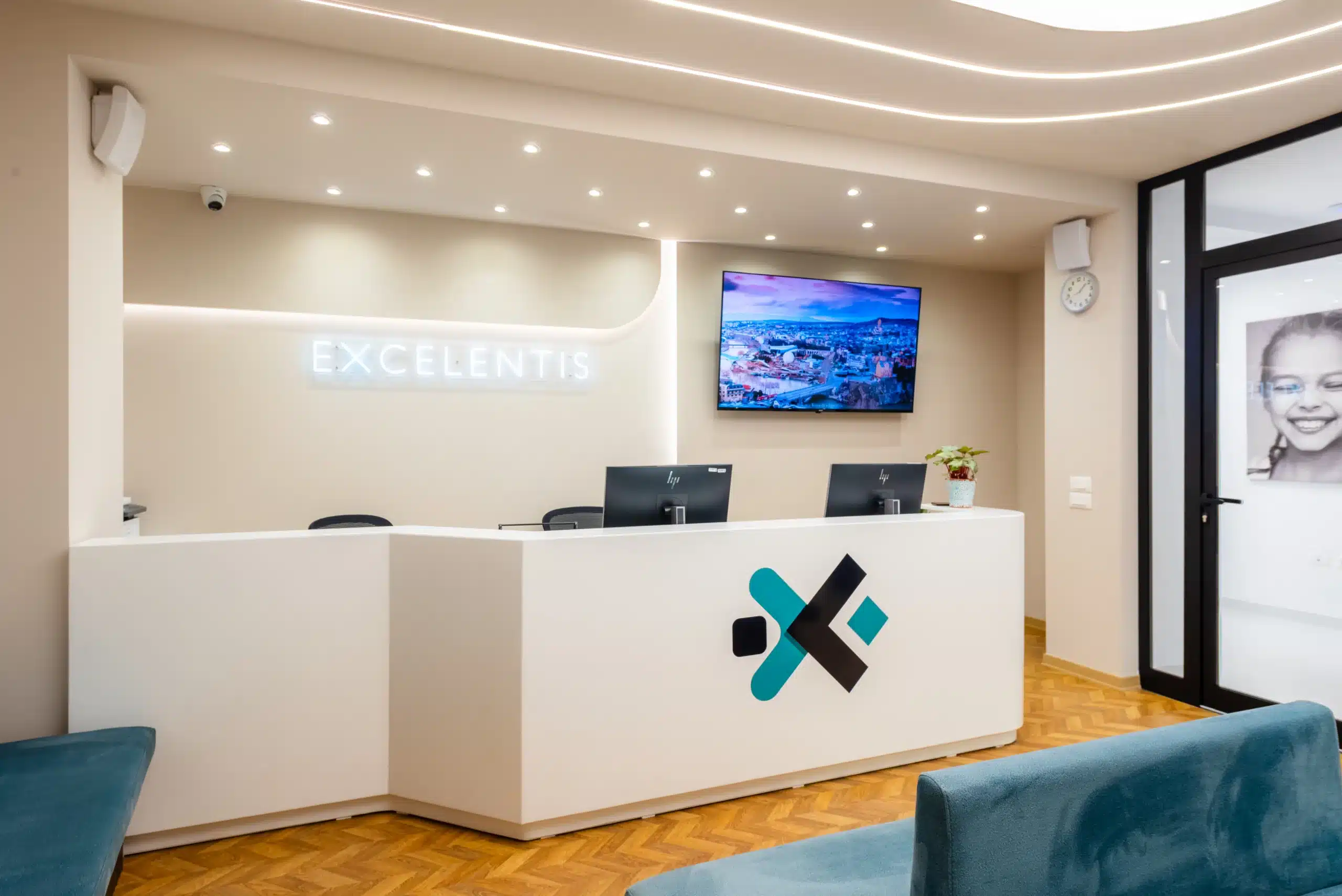
Book Your Virtual Consultation with Our Lead Implantologistays Away – Get Started Today!
Dental Implants Albania FAQ
Is it safe to get dental implants in Albania?
Yes, it is perfectly safe to get dental implants in Albania, especially in Tirana. The safest way is to go with a clinic like Excelentis, that is specialized in dental tourism and offers All-Inclusive packages for international patients.
Why should I choose Excelentis over other dental clinics in Europe?
Excelentis offers European-trained specialists, cutting-edge technology, and premium materials at up to 70% lower costs than Western Europe. We provide immediate-load implants, lifetime warranty options, and a seamless experience with free flights, accommodation, and transfers for qualifying treatments, all under strict European medical standards.
Are dental implants in Albania performed by qualified dentists?
Yes, at Excelentis, dental implants are performed by highly qualified, European-trained specialists using advanced technology and top-quality materials. We follow strict European sterilization protocols, ensuring safe, precise, and long-lasting results comparable to top clinics in the UK, Germany, and Italy.
Can I combine dental implants with other treatments, such as crowns or veneers, during my trip to Albania?
Yes, at Excelentis, you can combine dental implants with other treatments such as crowns, veneers, or full-mouth restorations during your trip. Our specialists create a personalized treatment plan to ensure that multiple procedures are performed efficiently within your visit.
How long do I need to stay in Albania after the dental implant procedure?
Treatment time depends on your case:
- Immediate-load implants: 3-5 days for the first phase, then a second visit after 4-6 months.
- All-on-4 or All-on-6: Usually 5-7 days for the first phase, followed by a second visit for permanent crowns.
We optimize your schedule for maximum efficiency and minimal travel time.
Does insurance cover dental implants in Albania?
Dental implant coverage depends on the insurance provider and policy. Basic plans typically don’t cover implants as they’re considered elective, but comprehensive policies might offer partial or full coverage. If not covered, Albania offers high-quality dental care at up to 70% less than in other countries, helping you save significantly.

What Happens After I Submit my Request?
✅ Our team will carefully review your information.
We assess your details to better understand your dental implant needs.
- ✅ You’ll hear from us shortly.
One of our specialists will reach out to discuss the next steps. - ✅ We’ll schedule your consultation at your convenience.
We work around your availability to book a personalized appointment.
